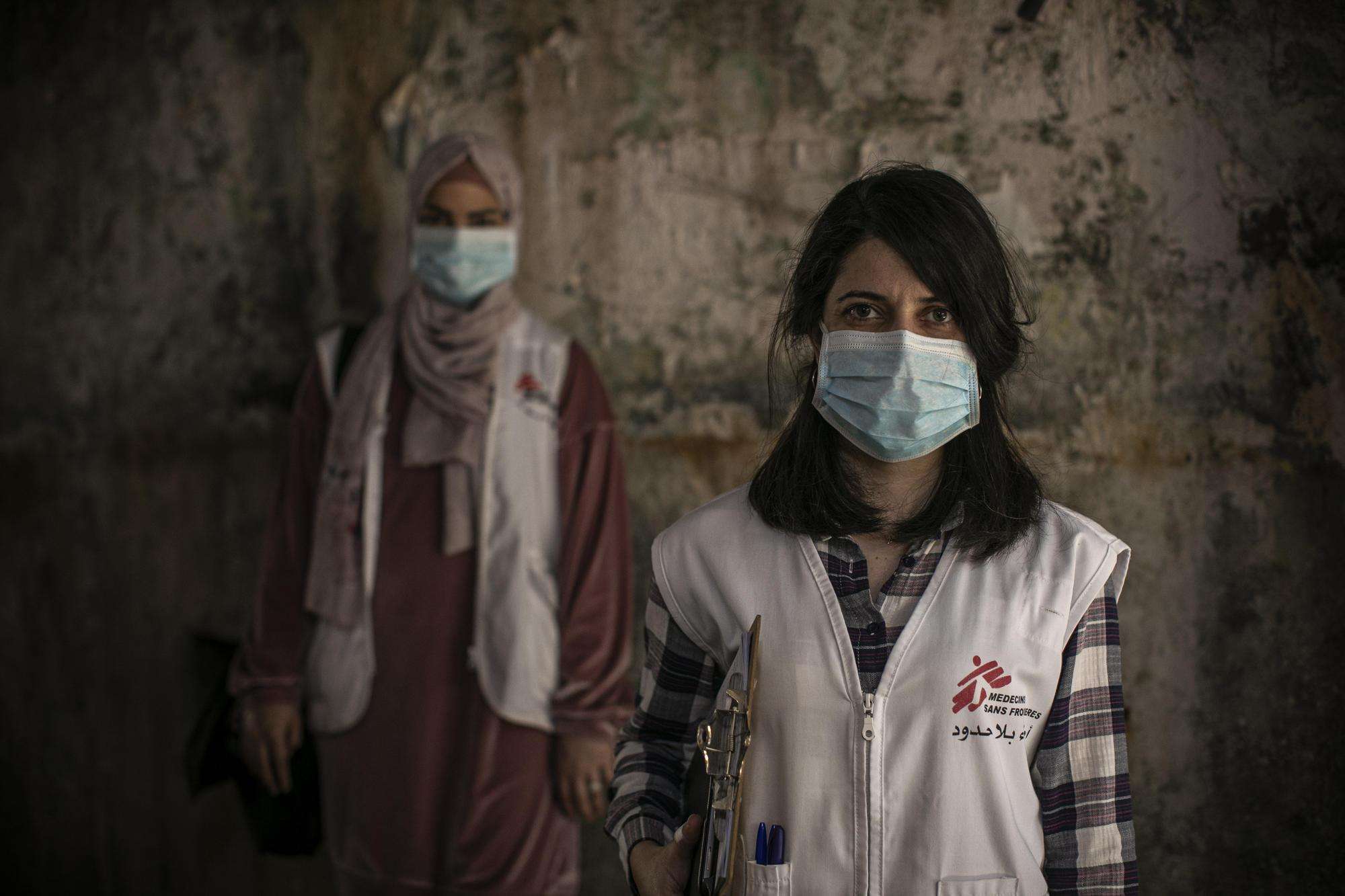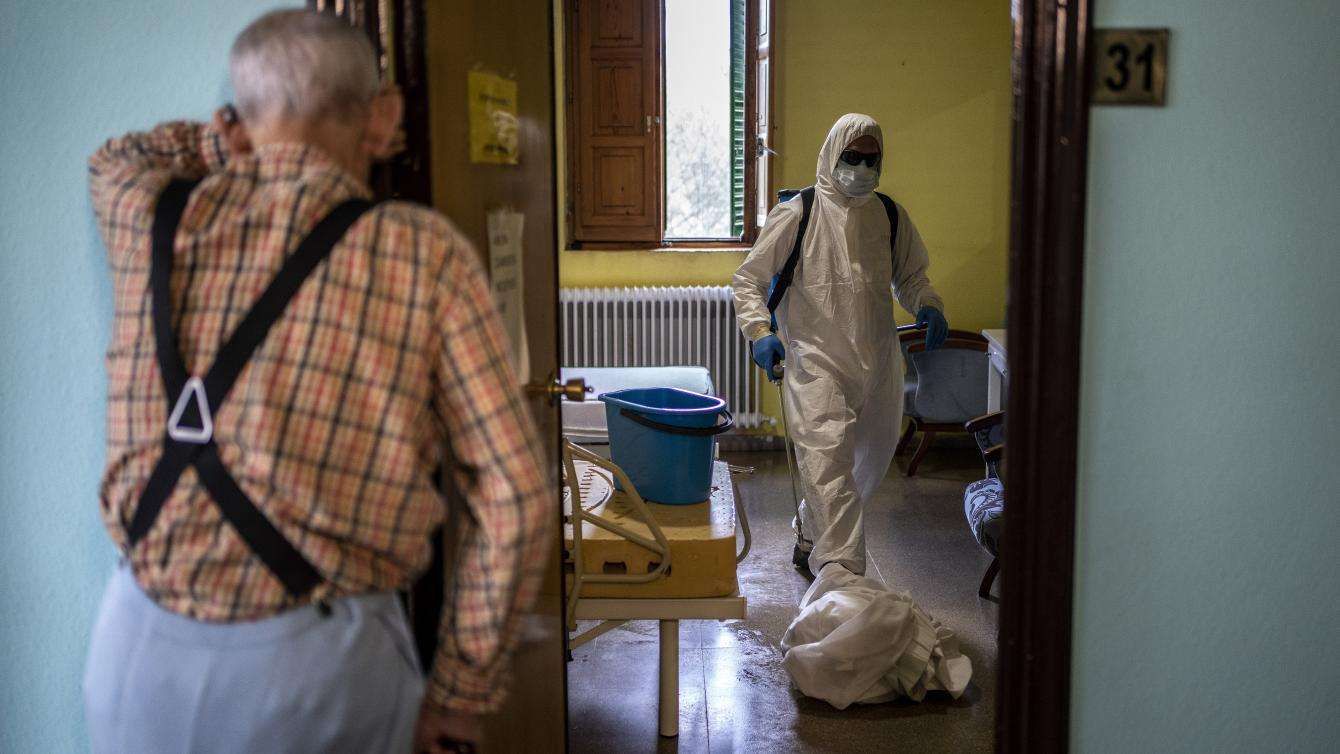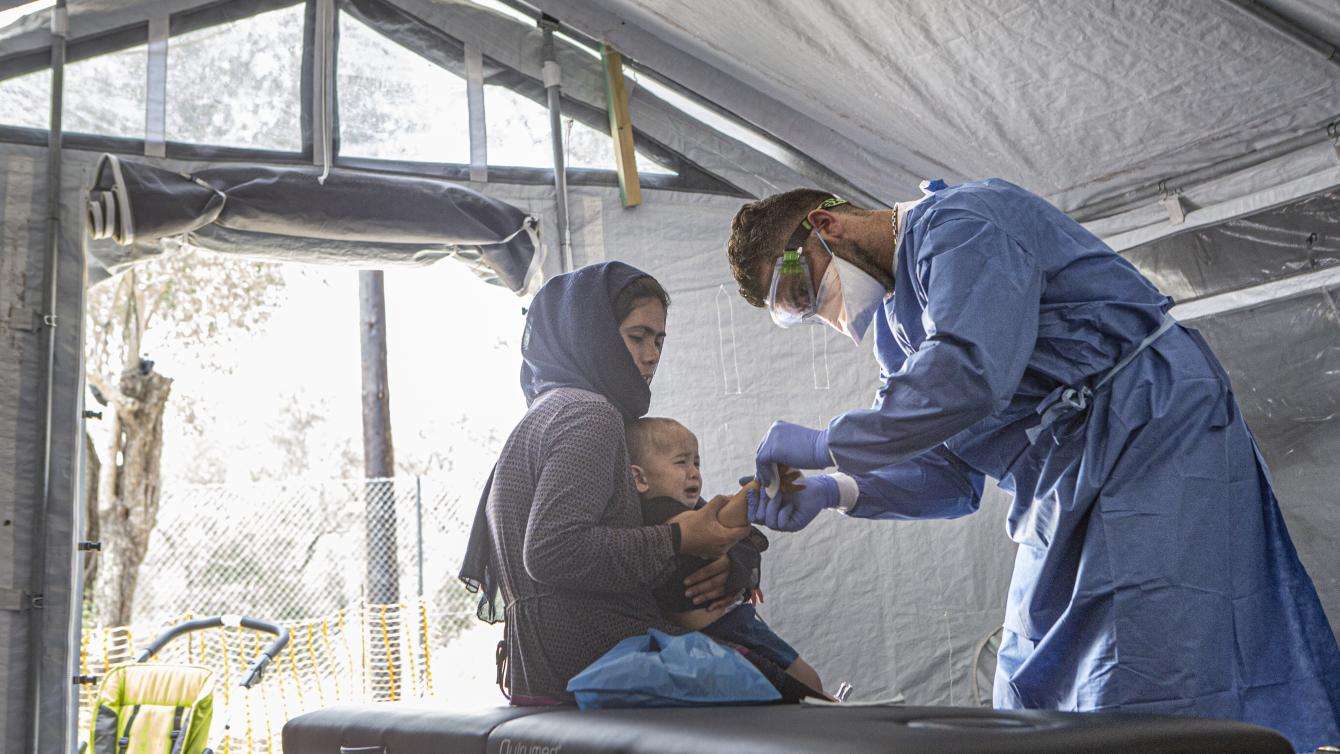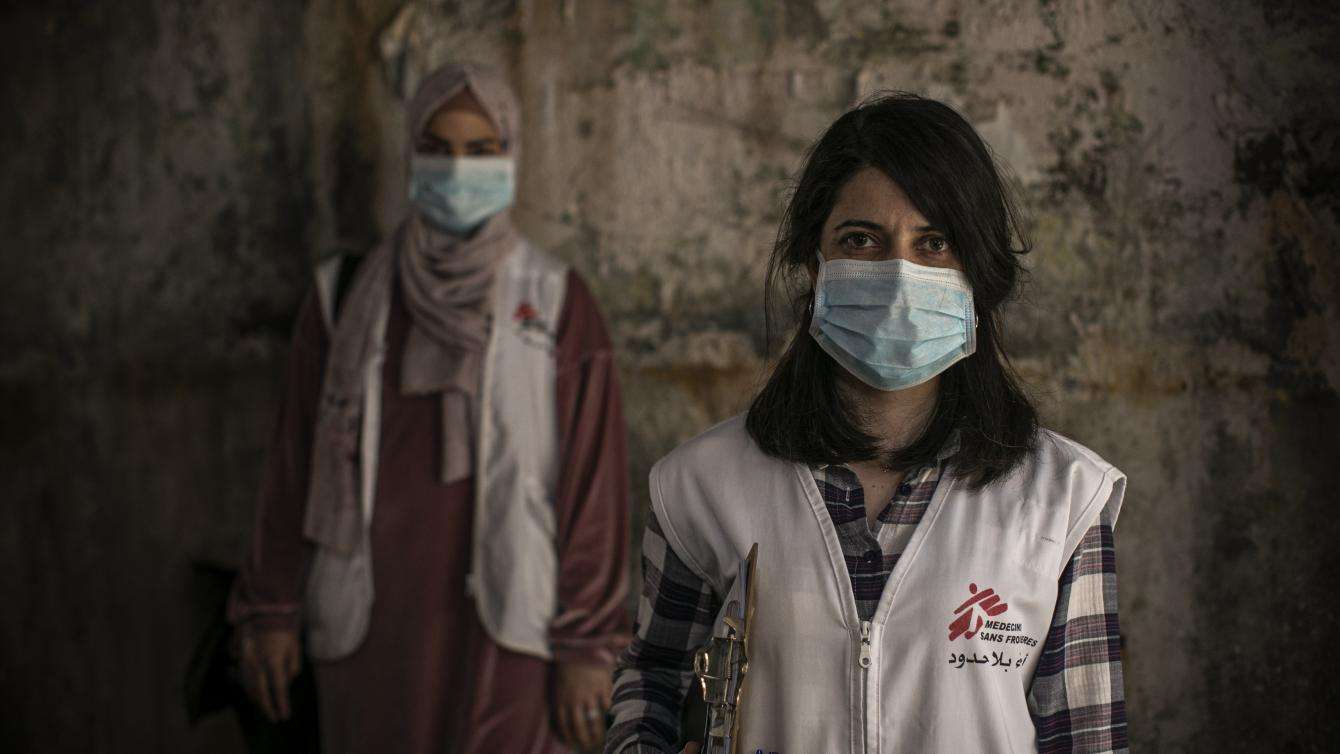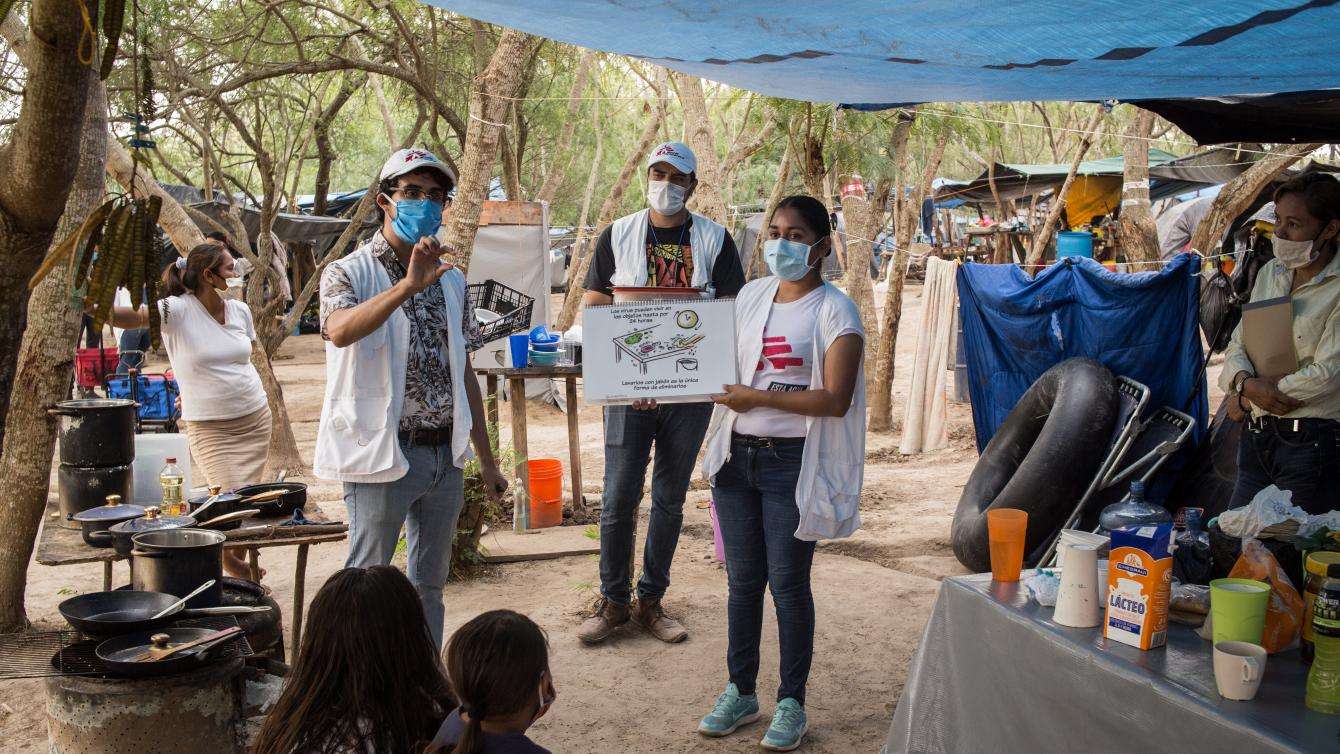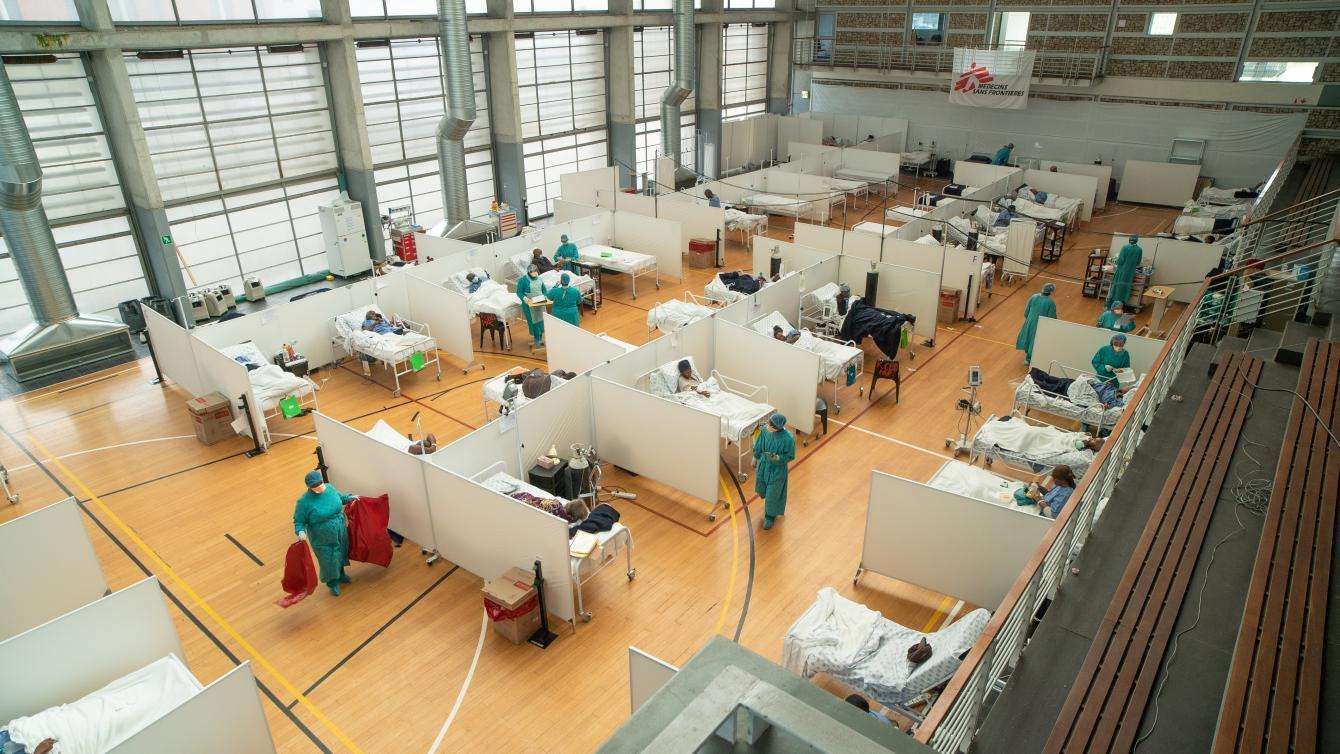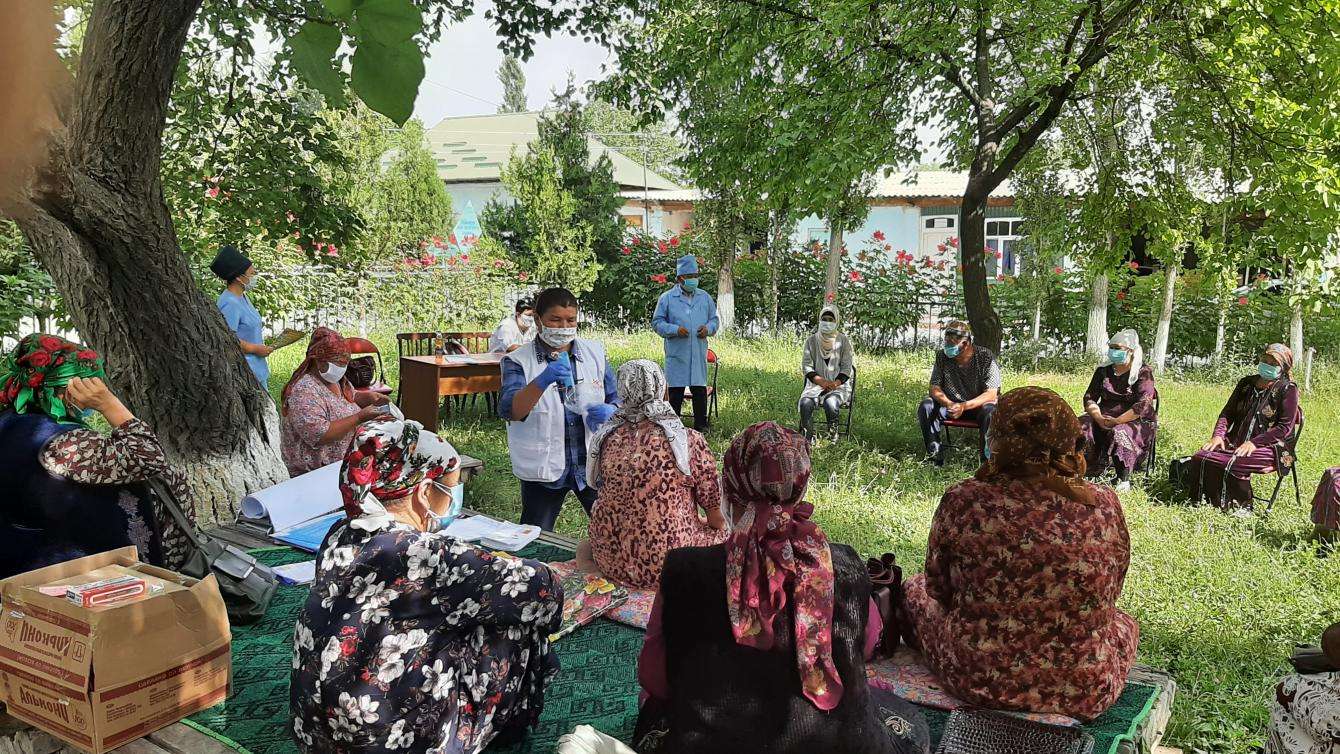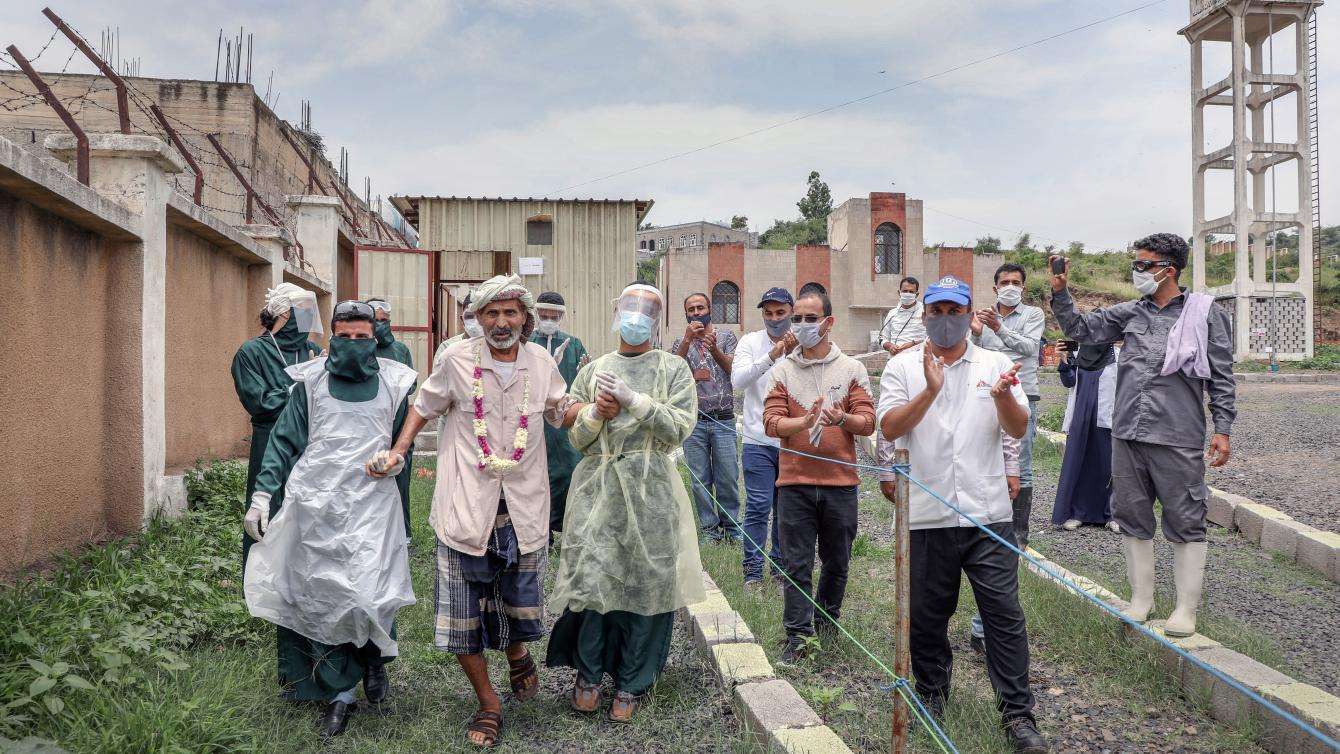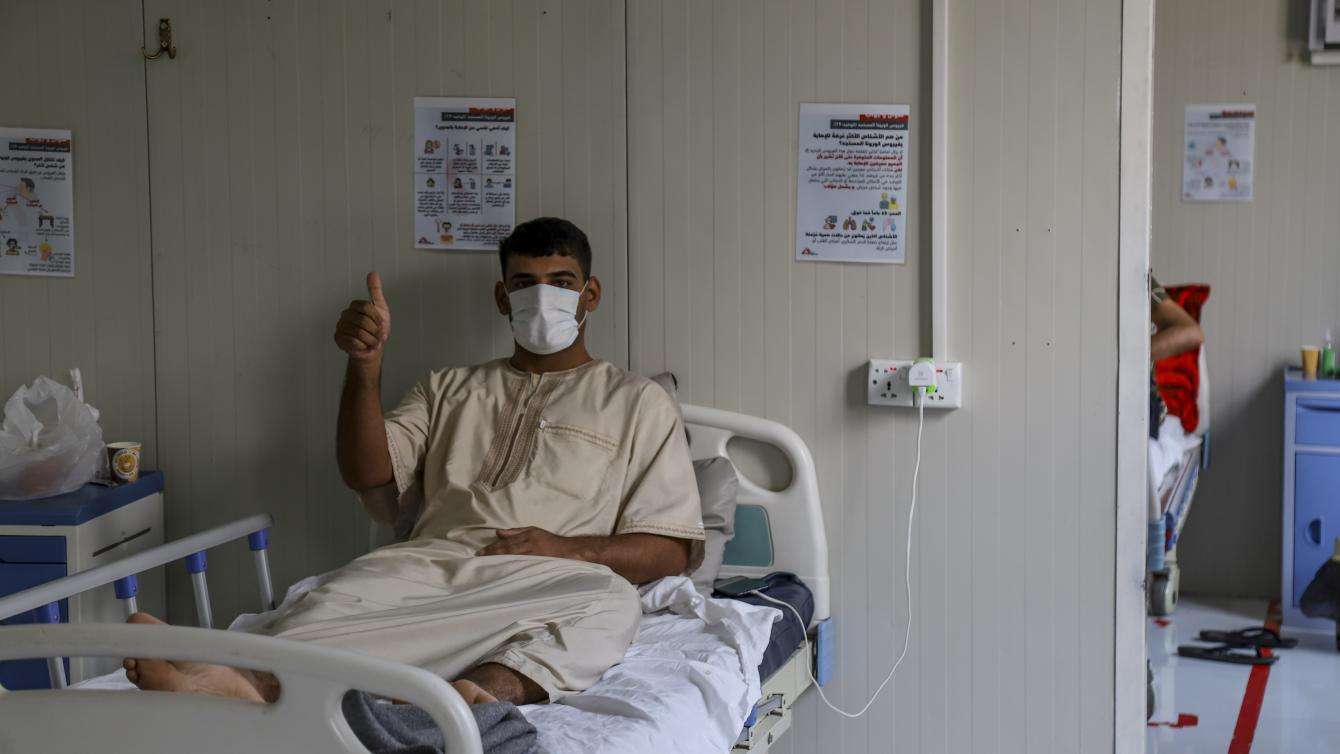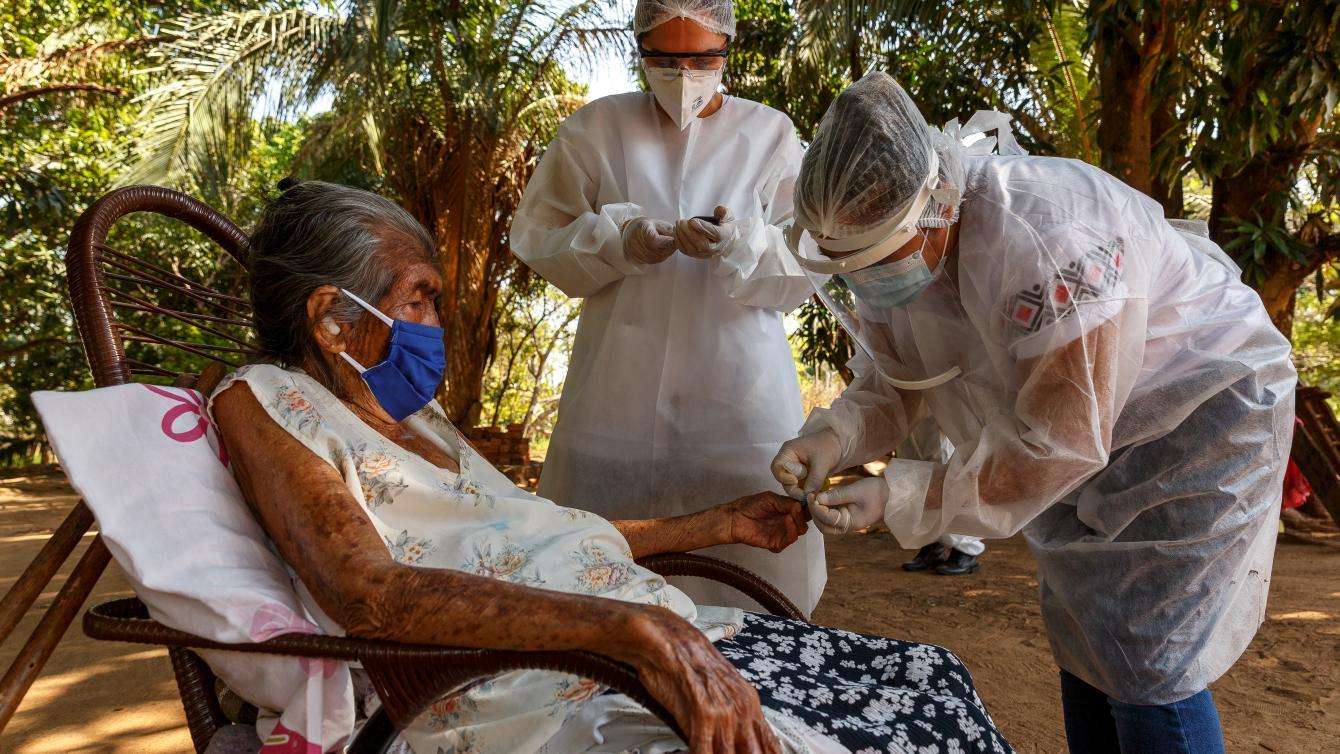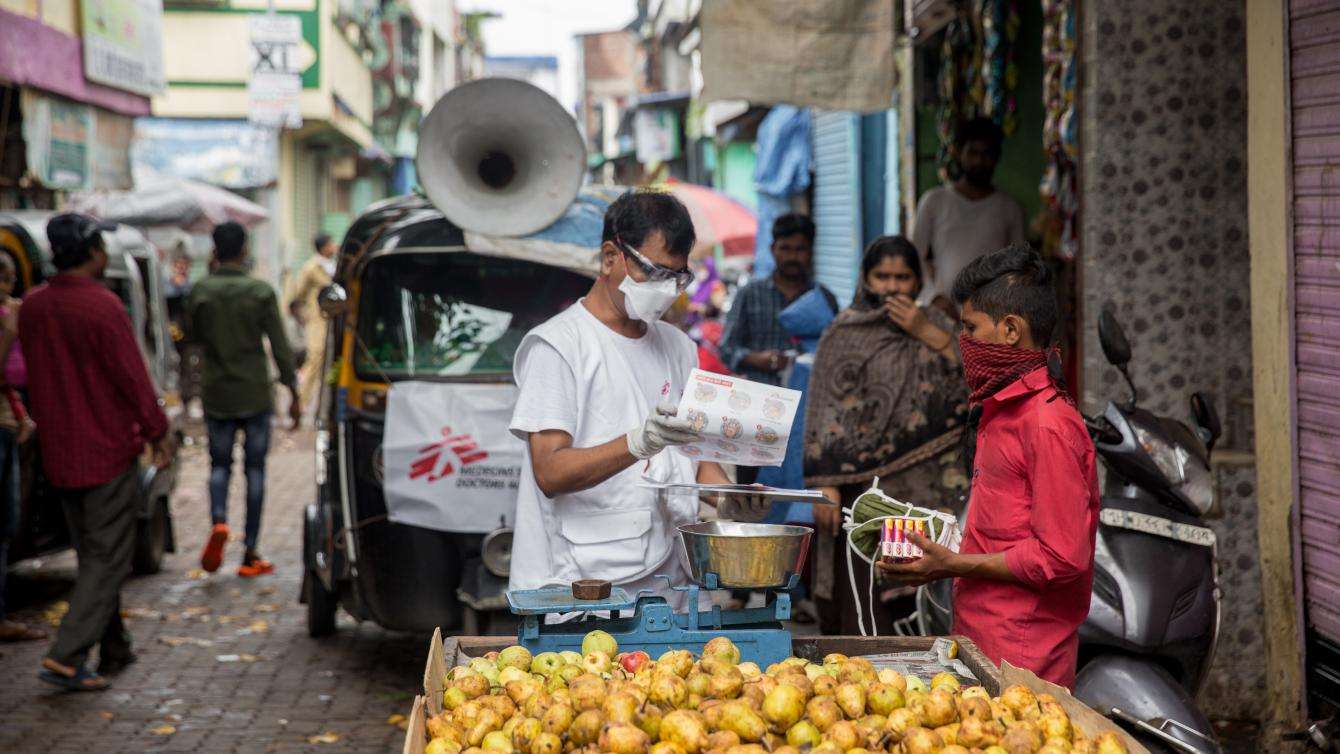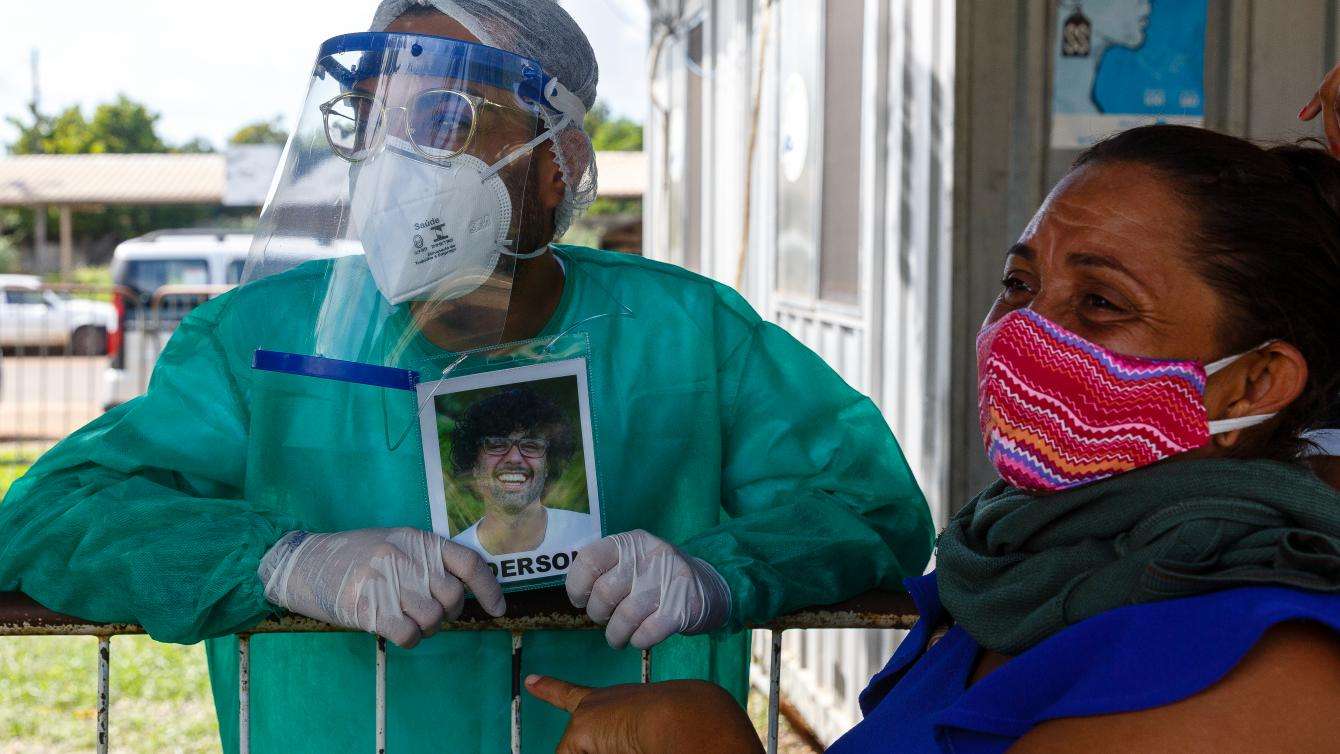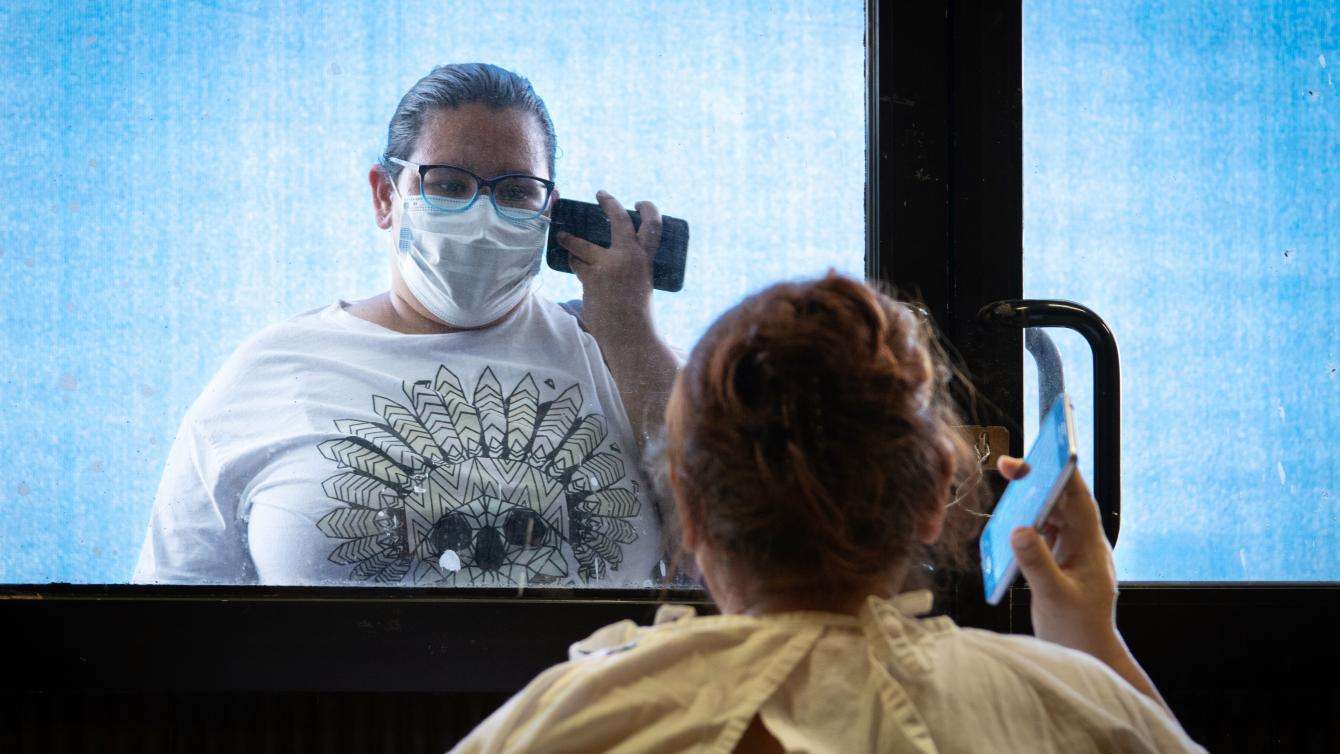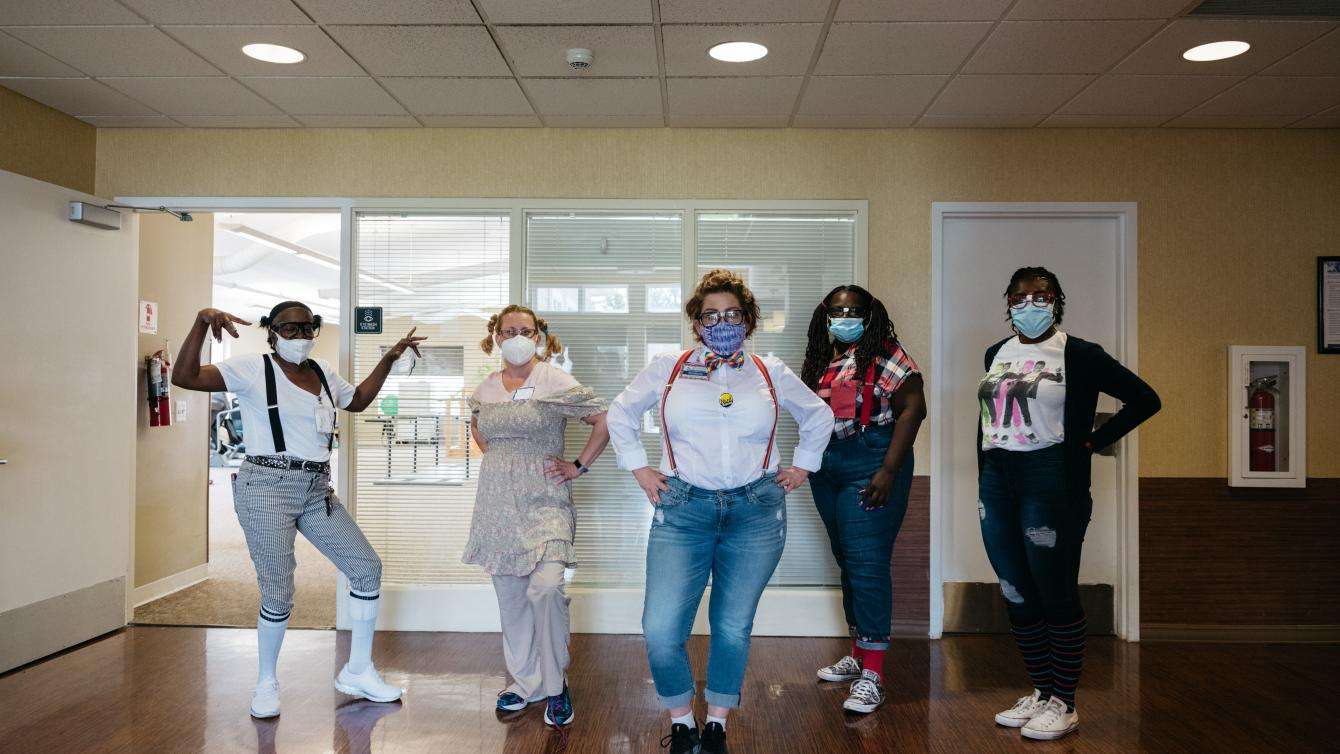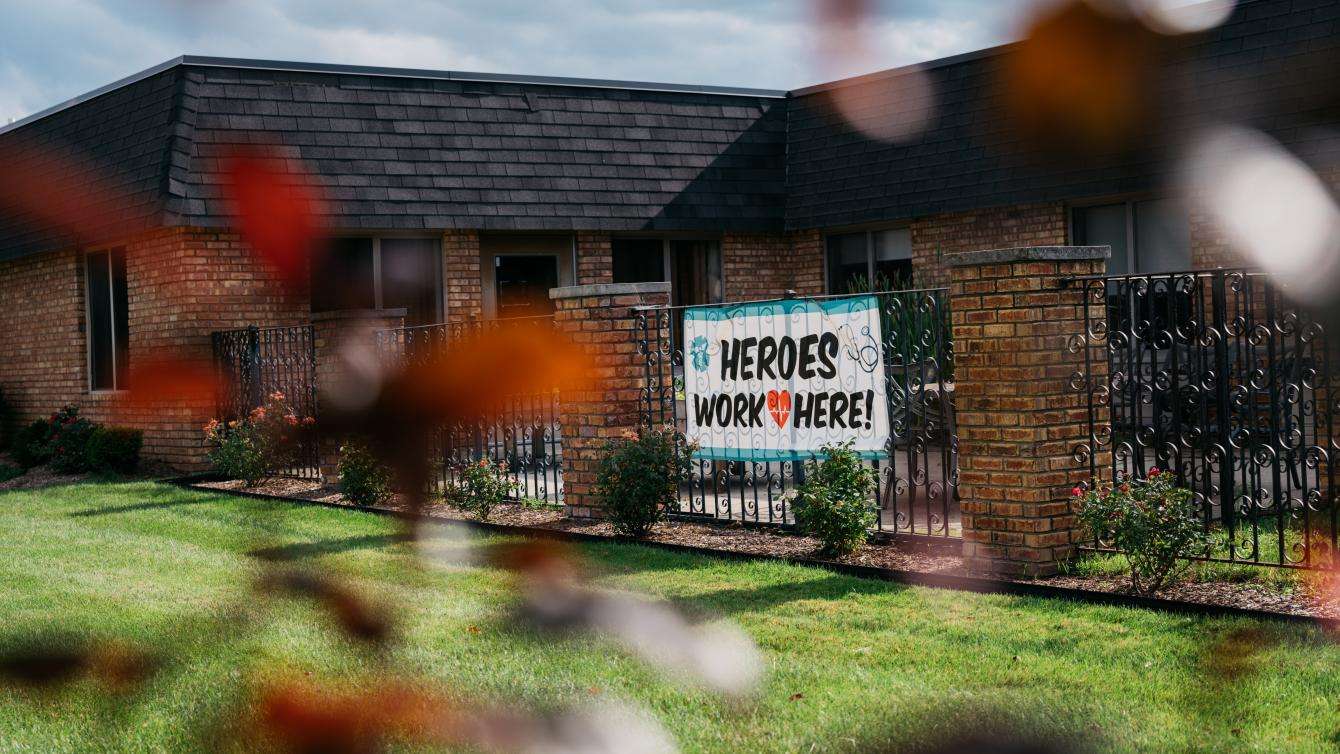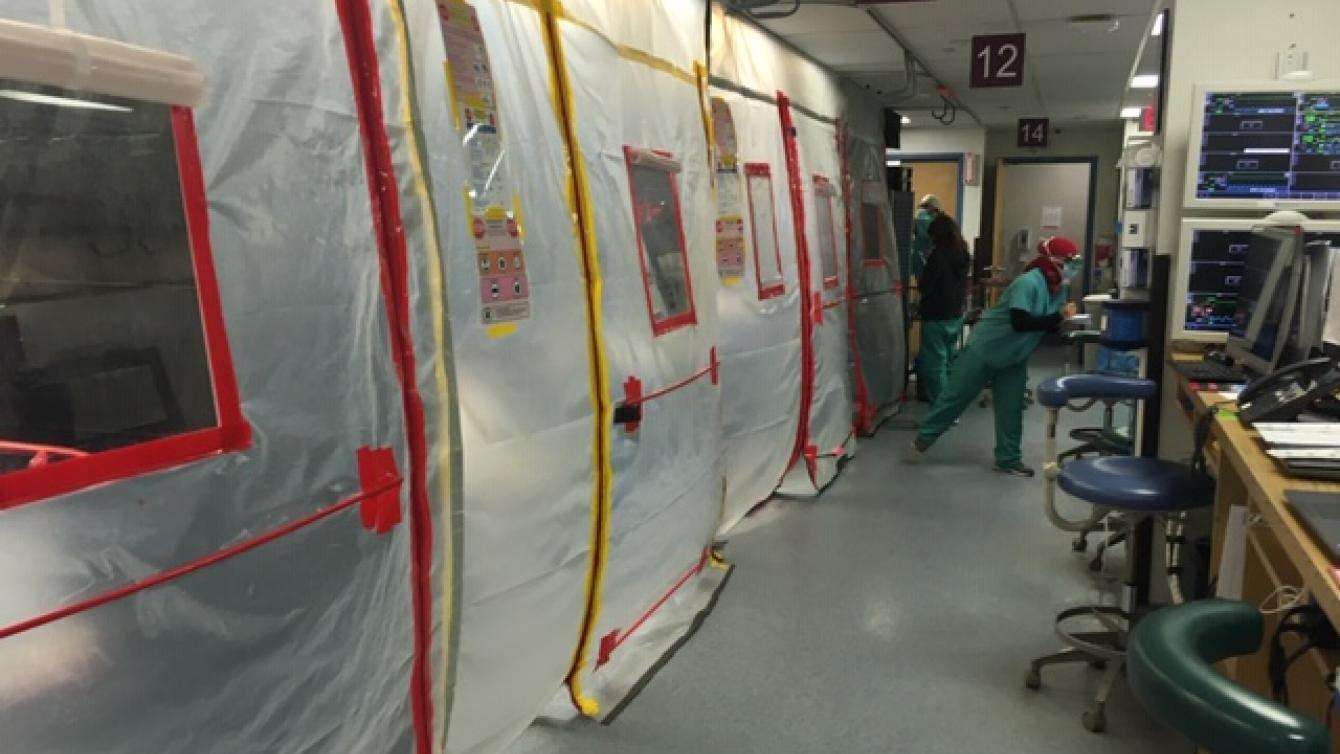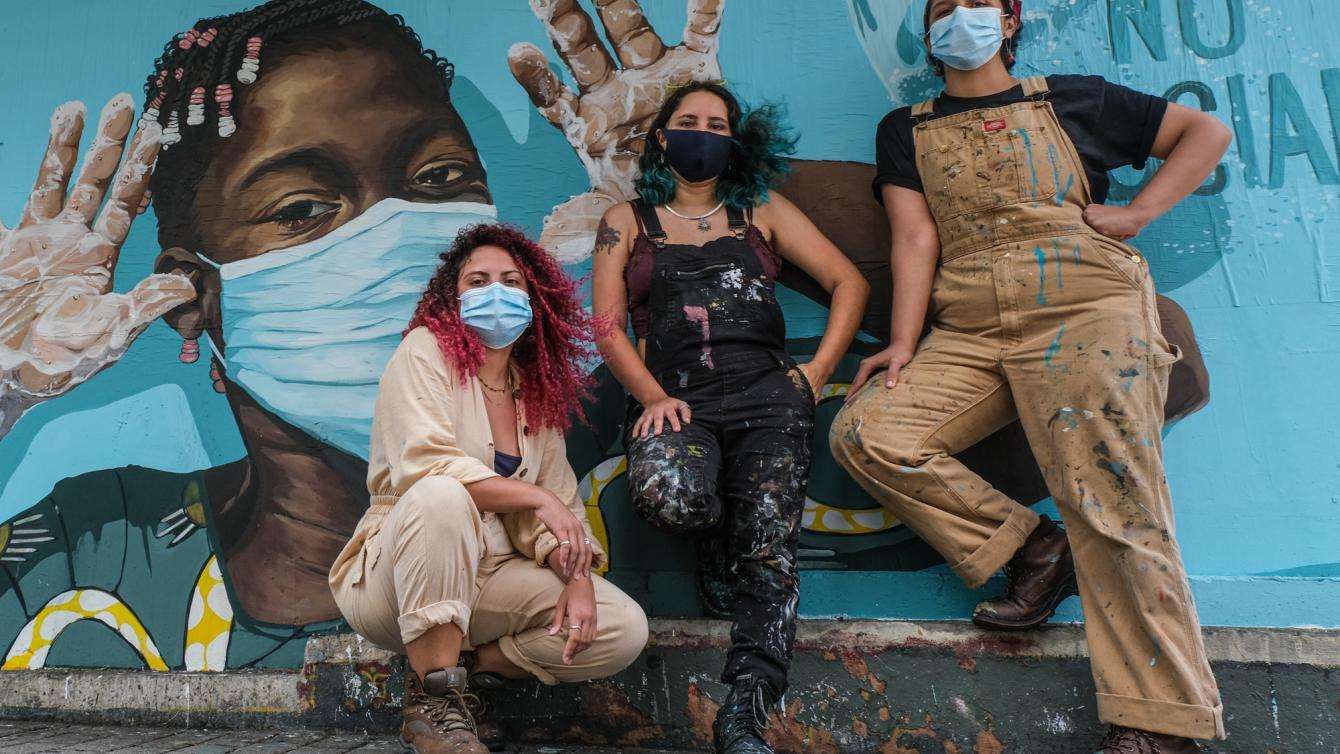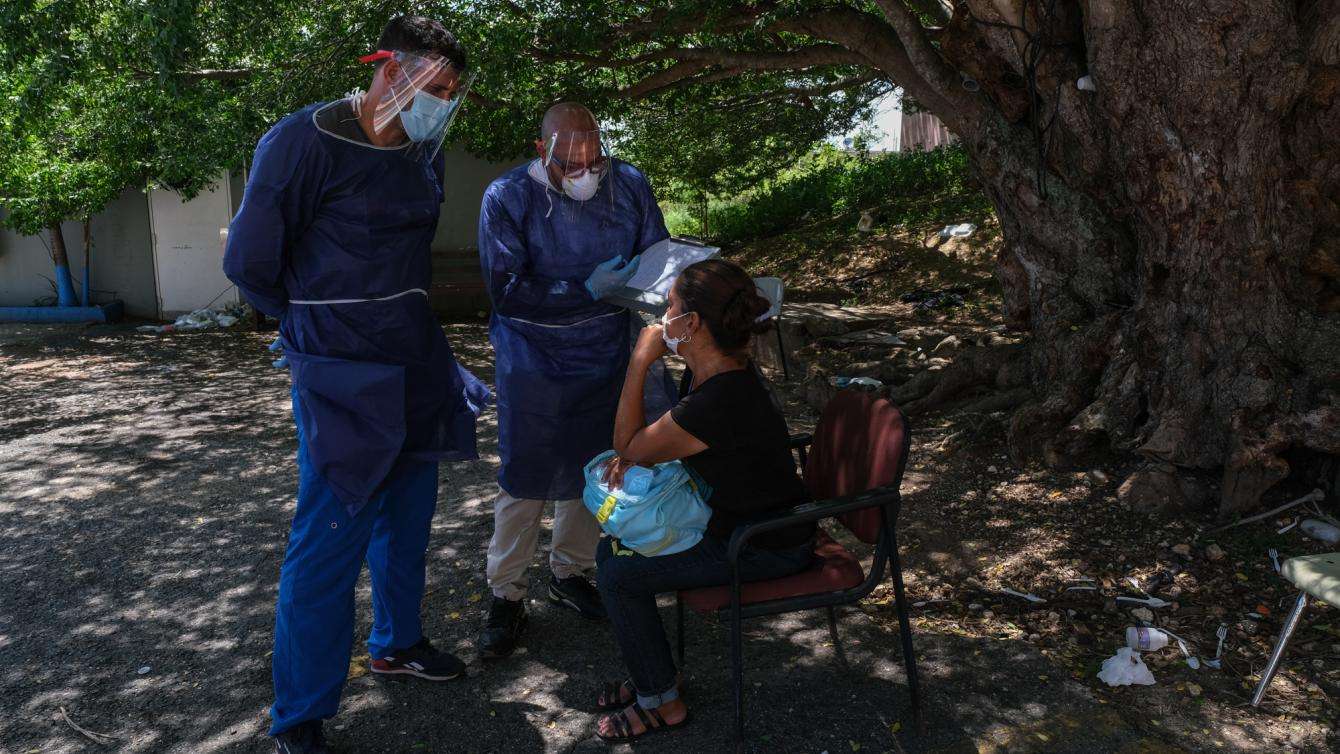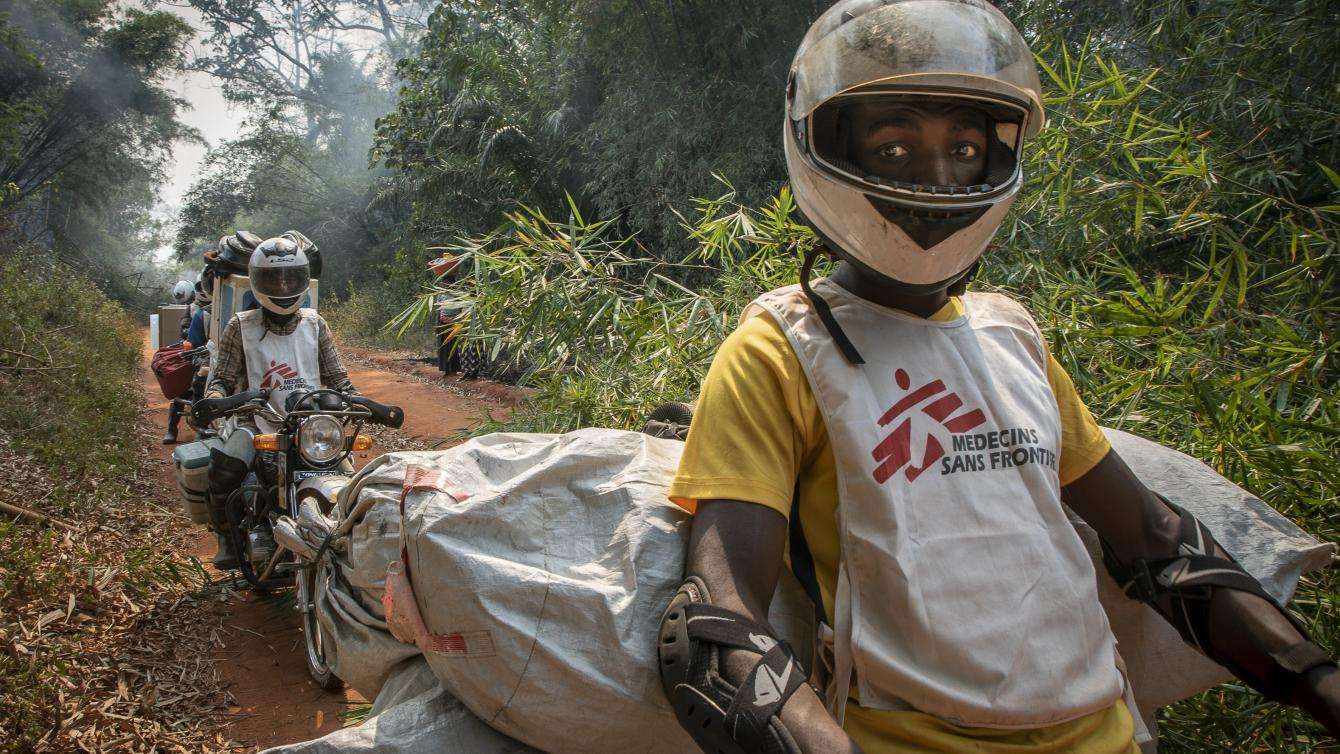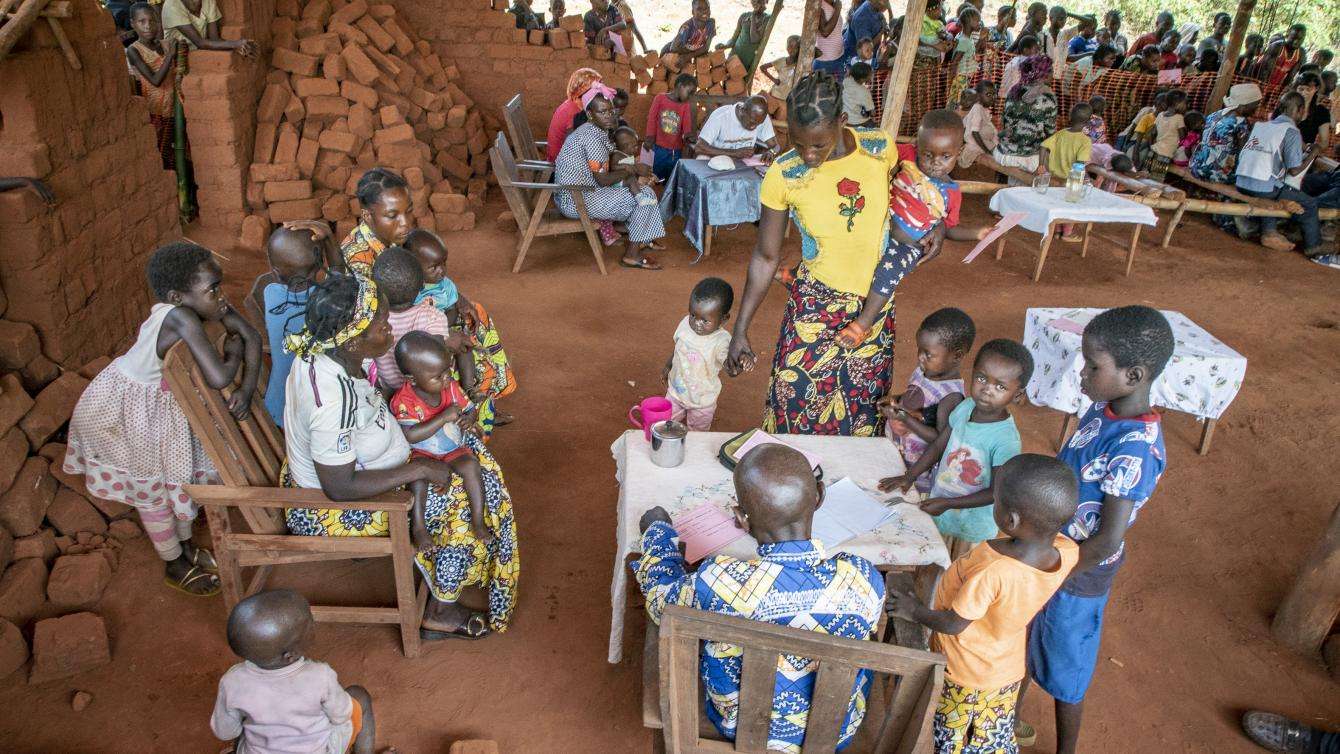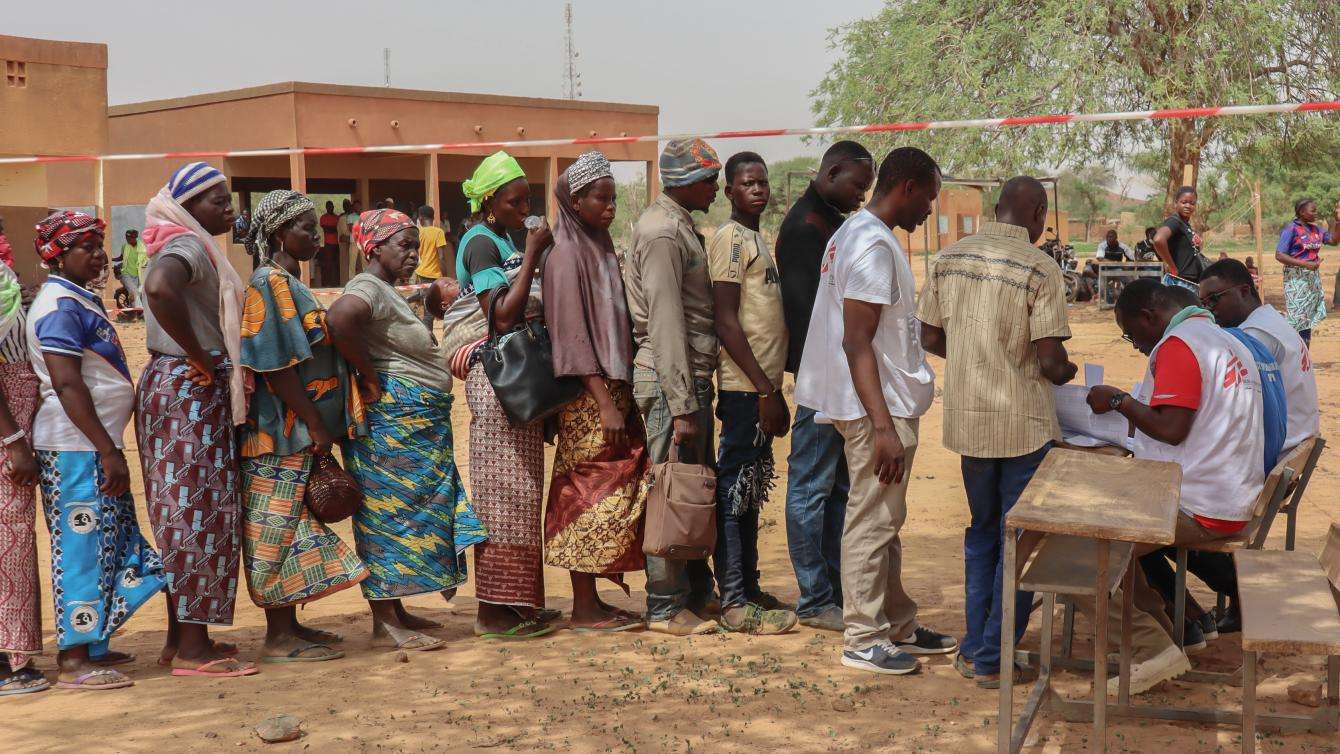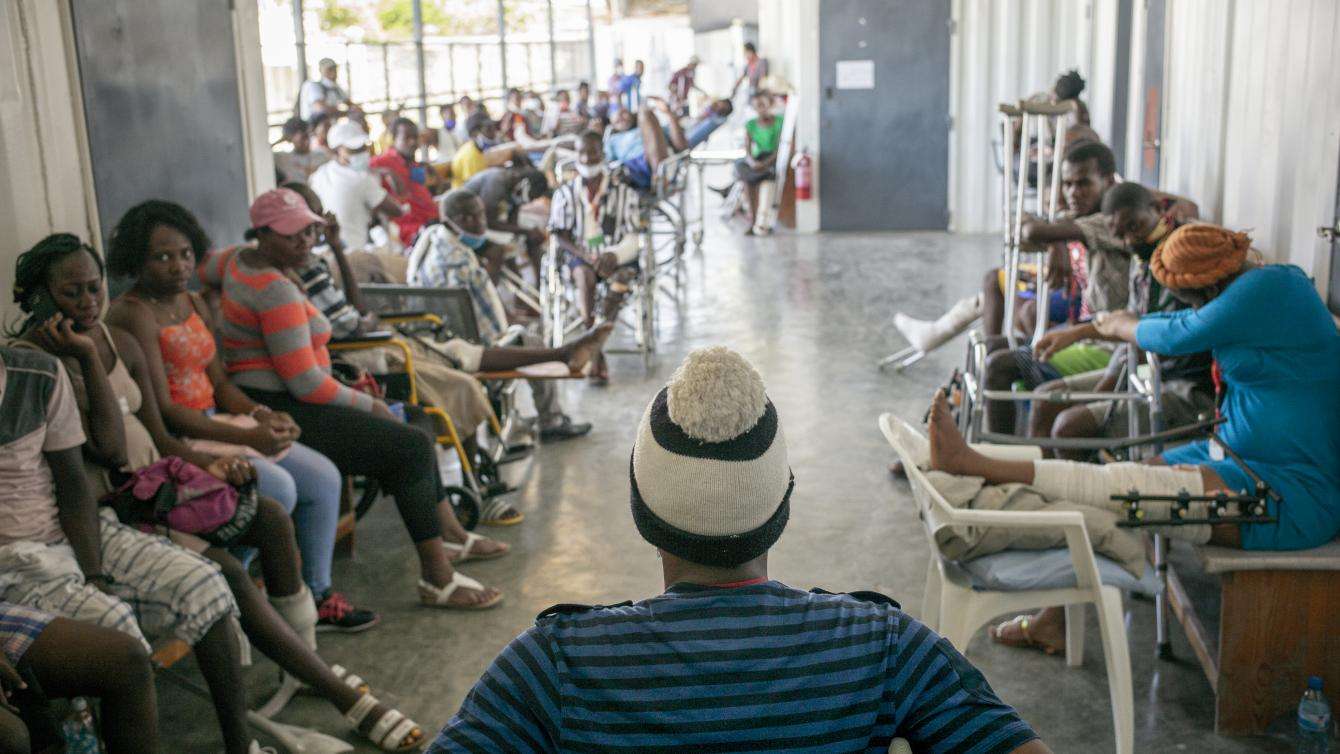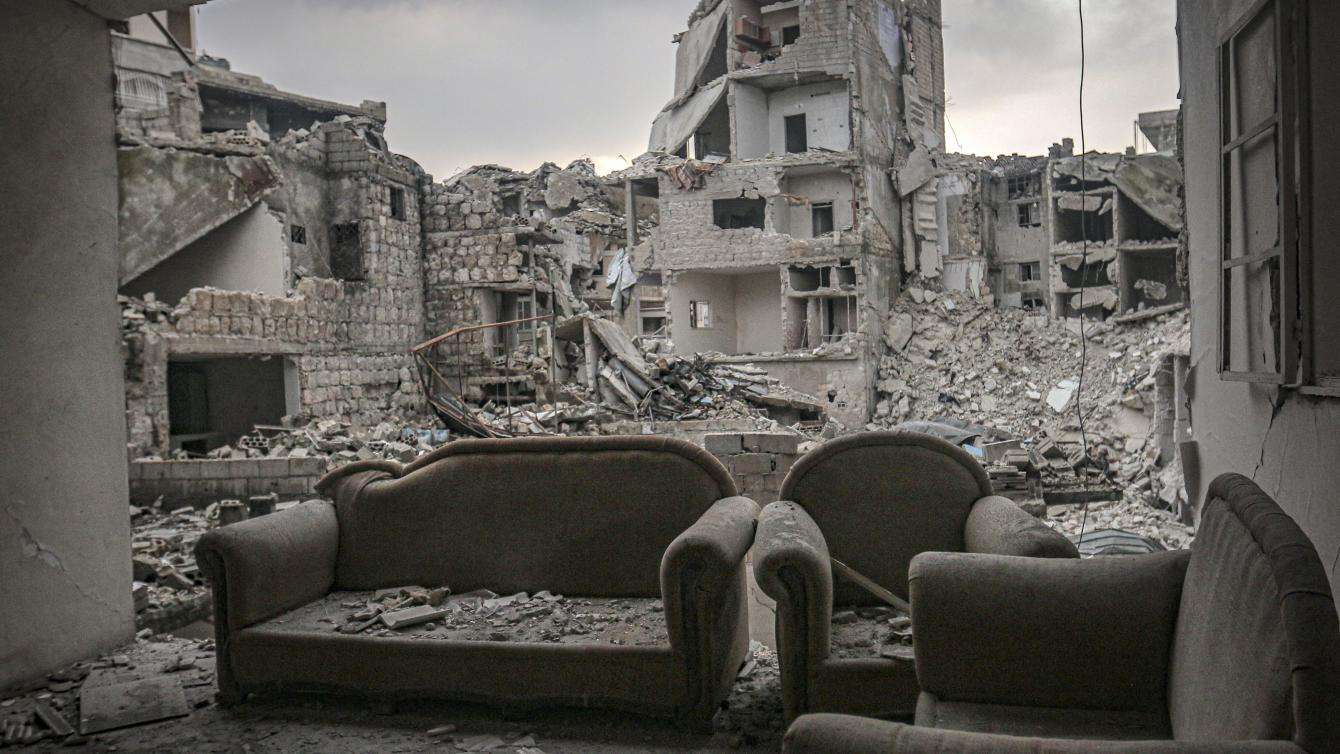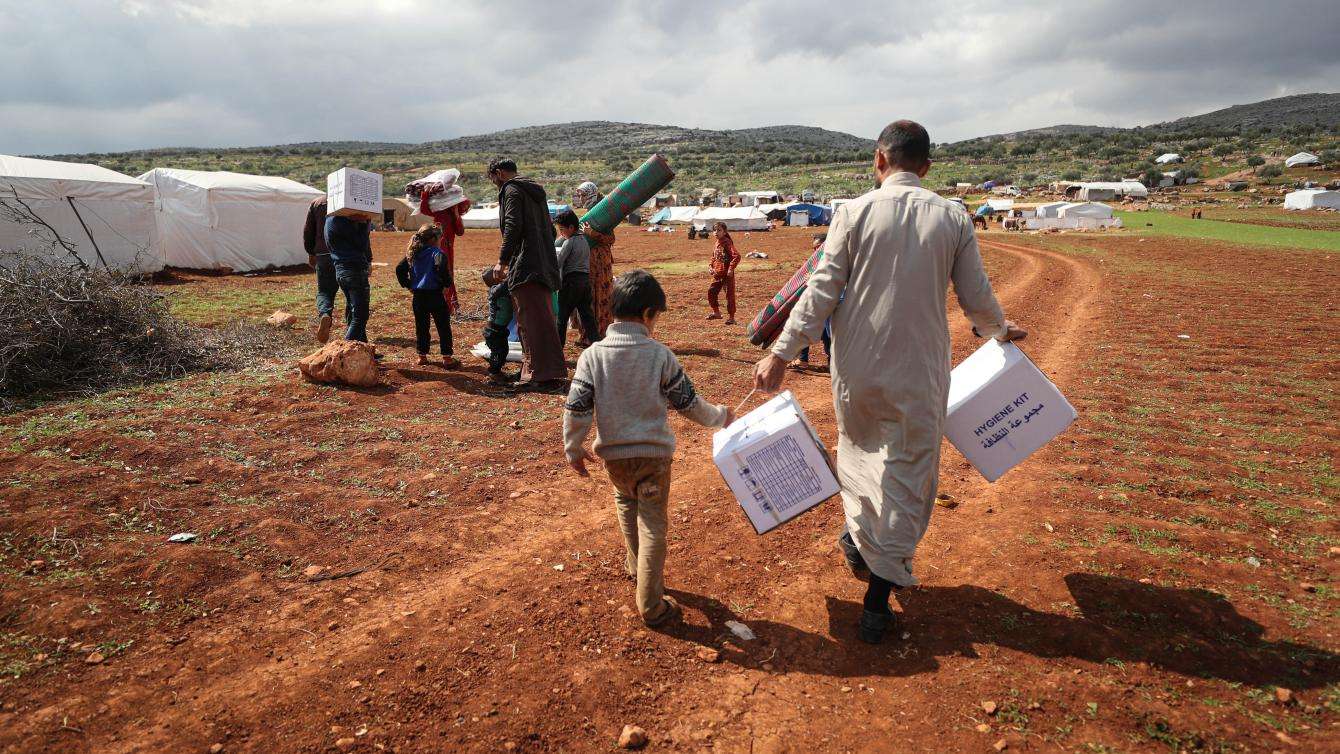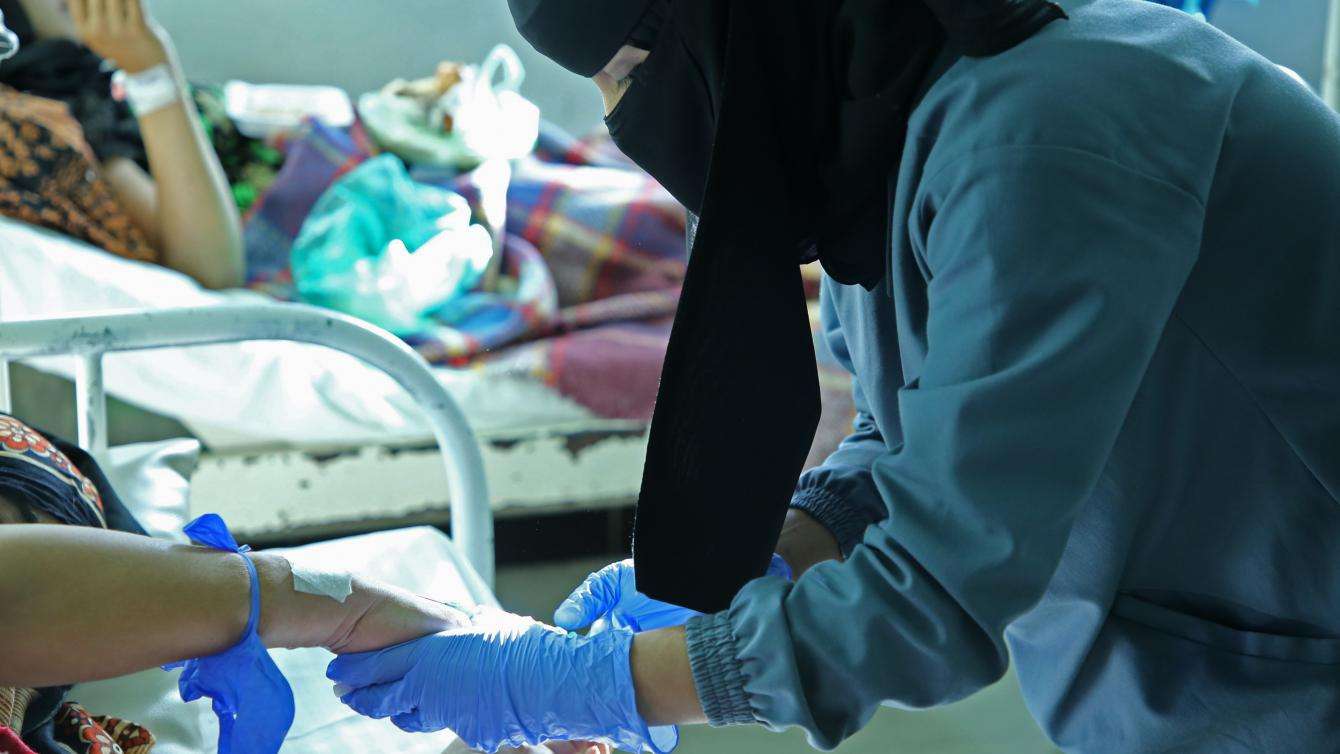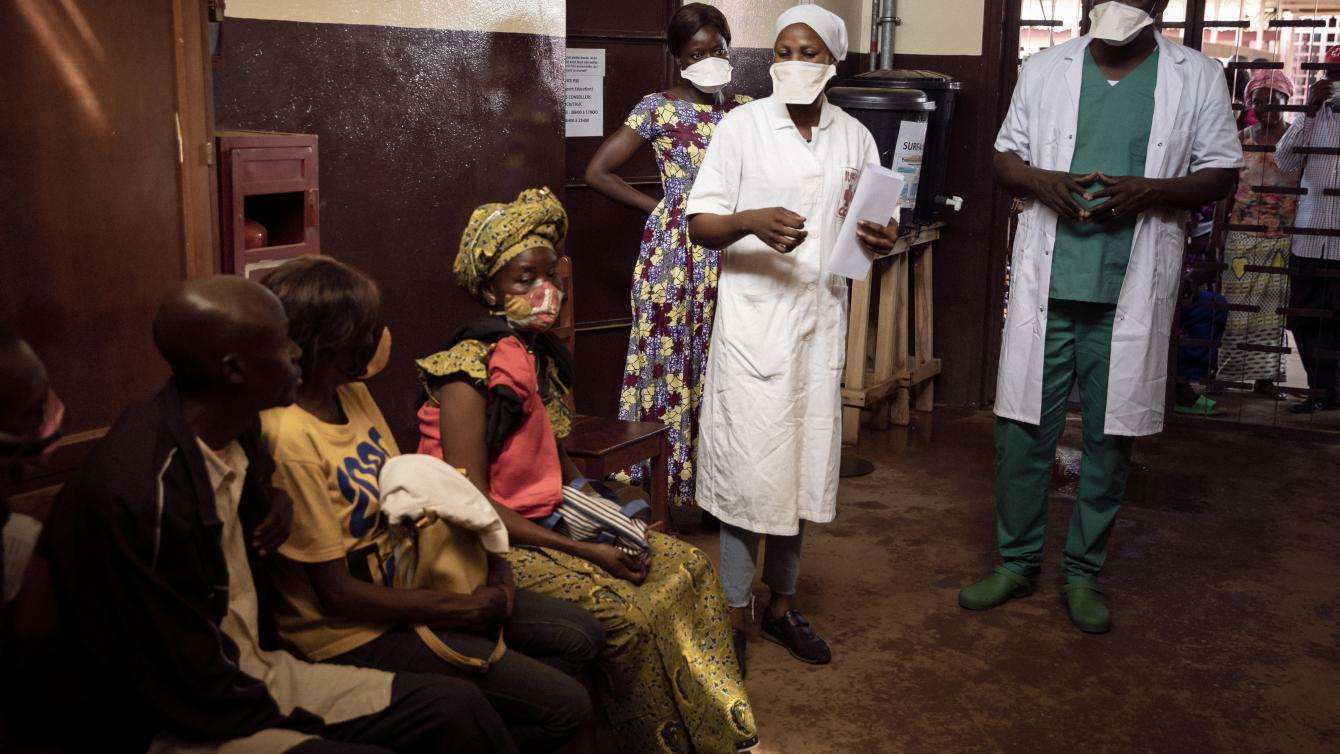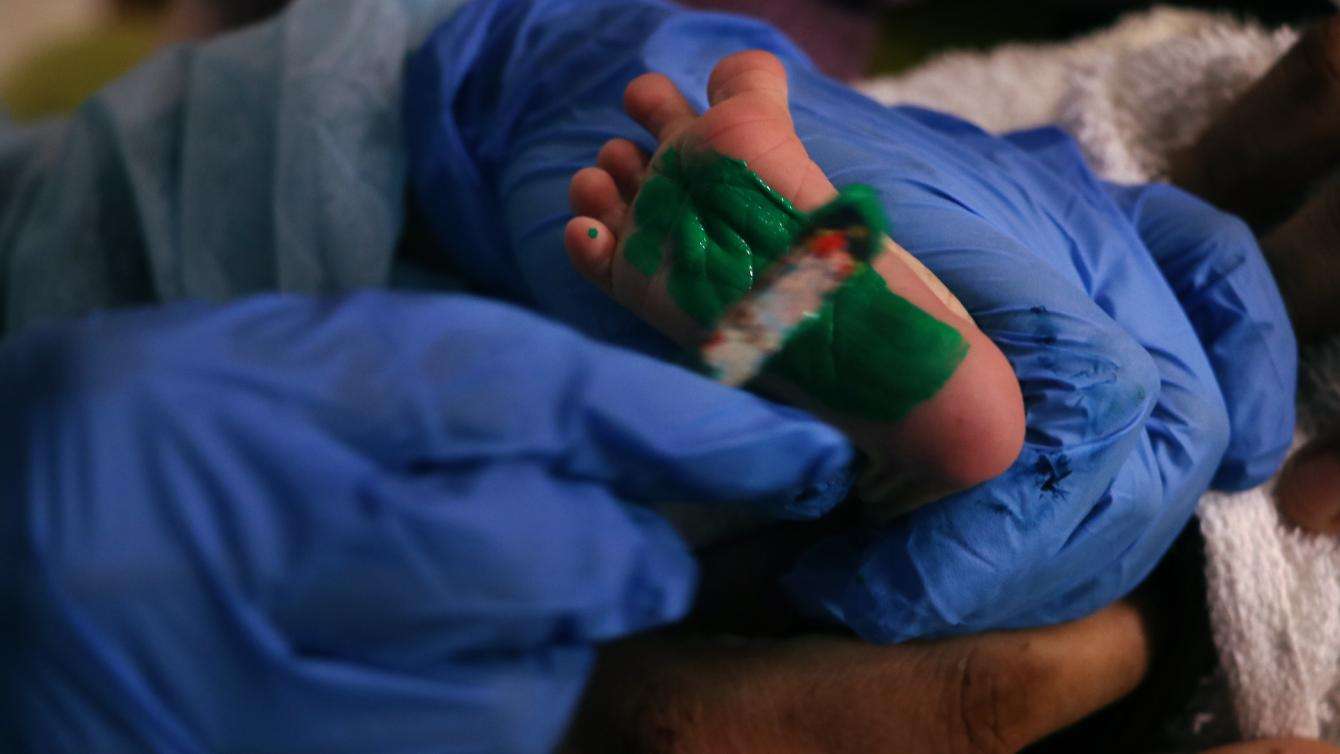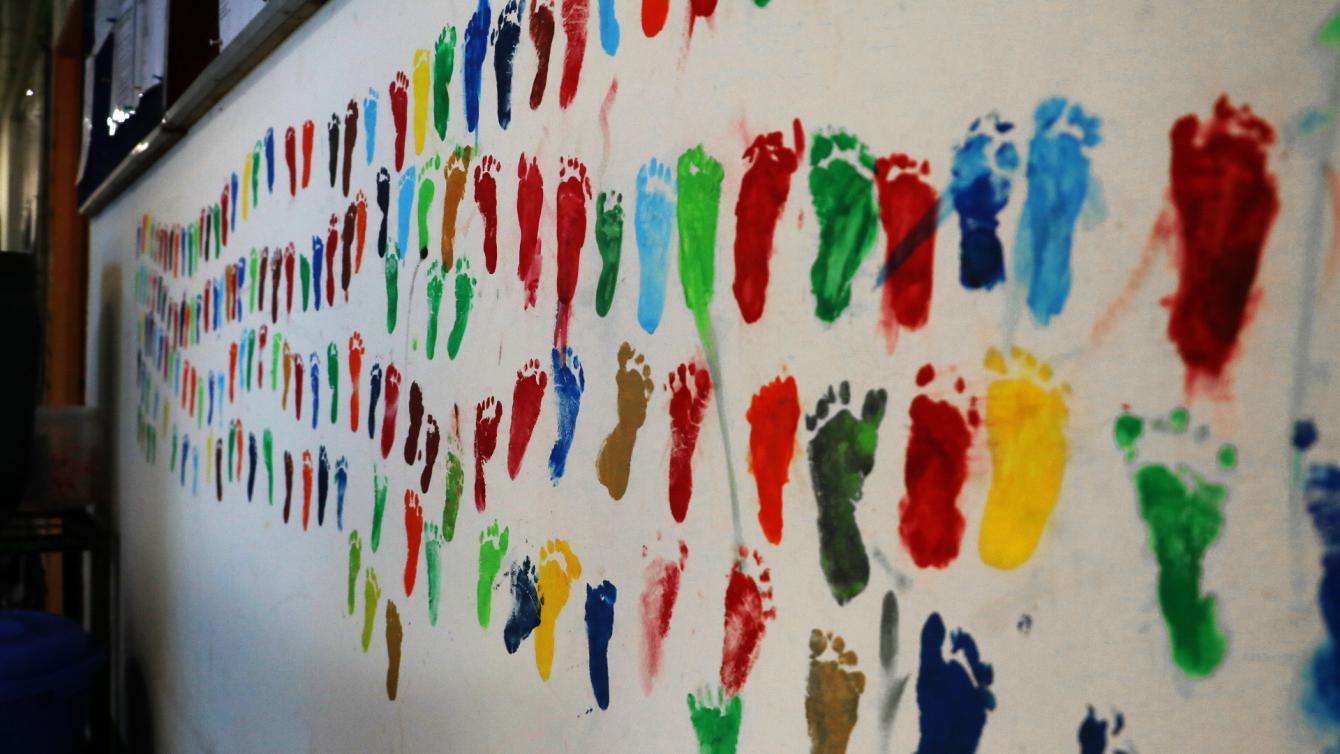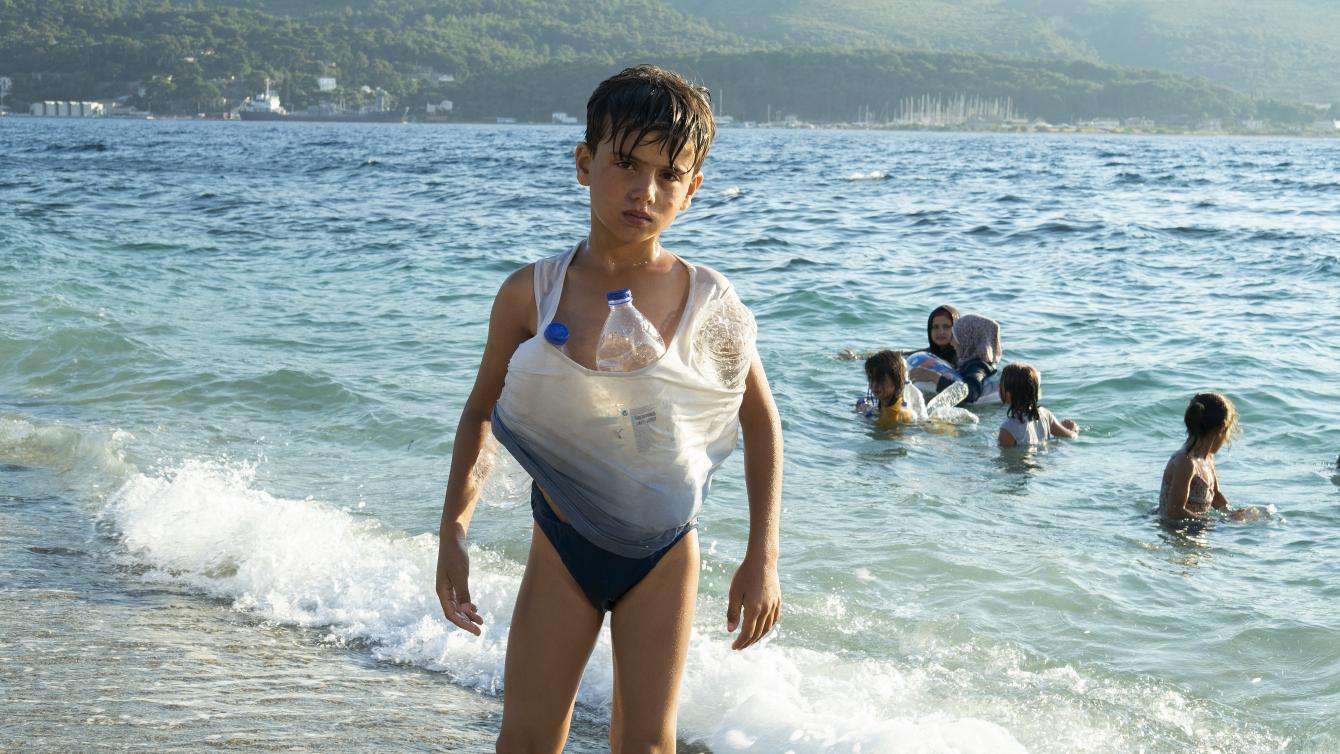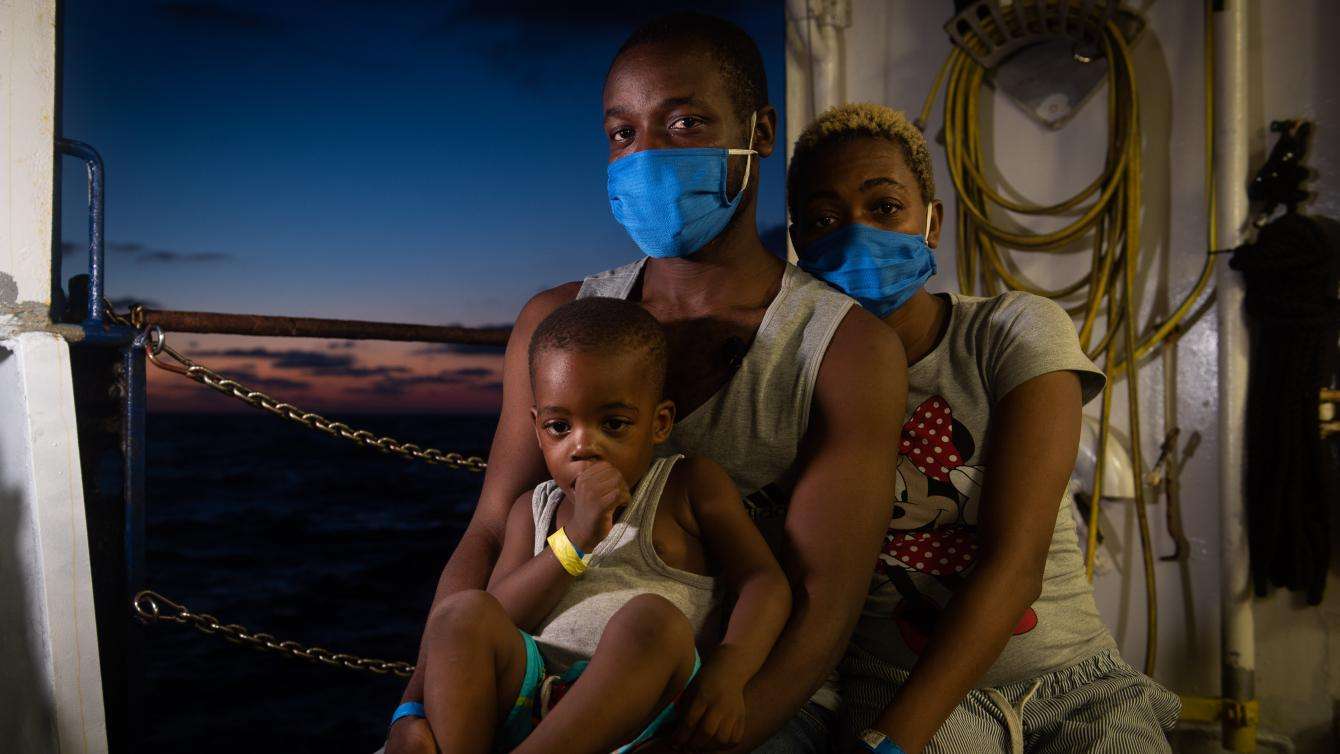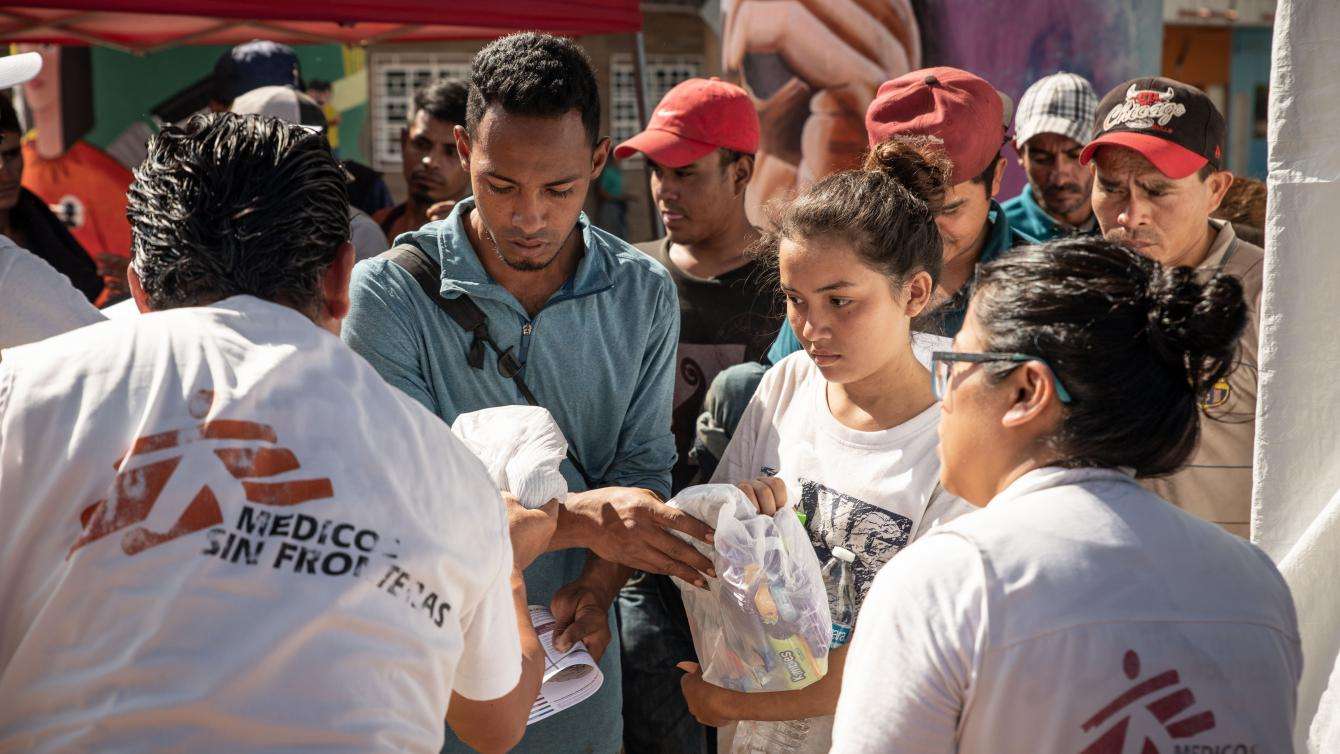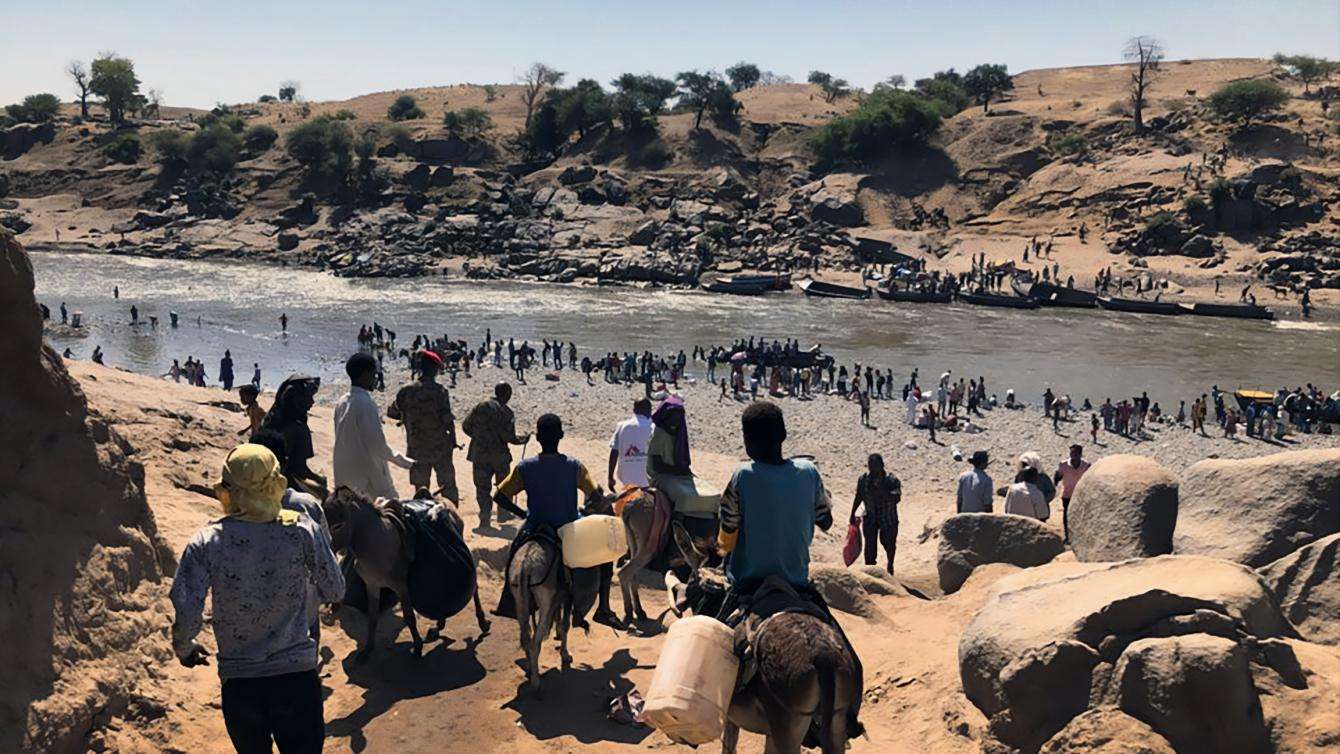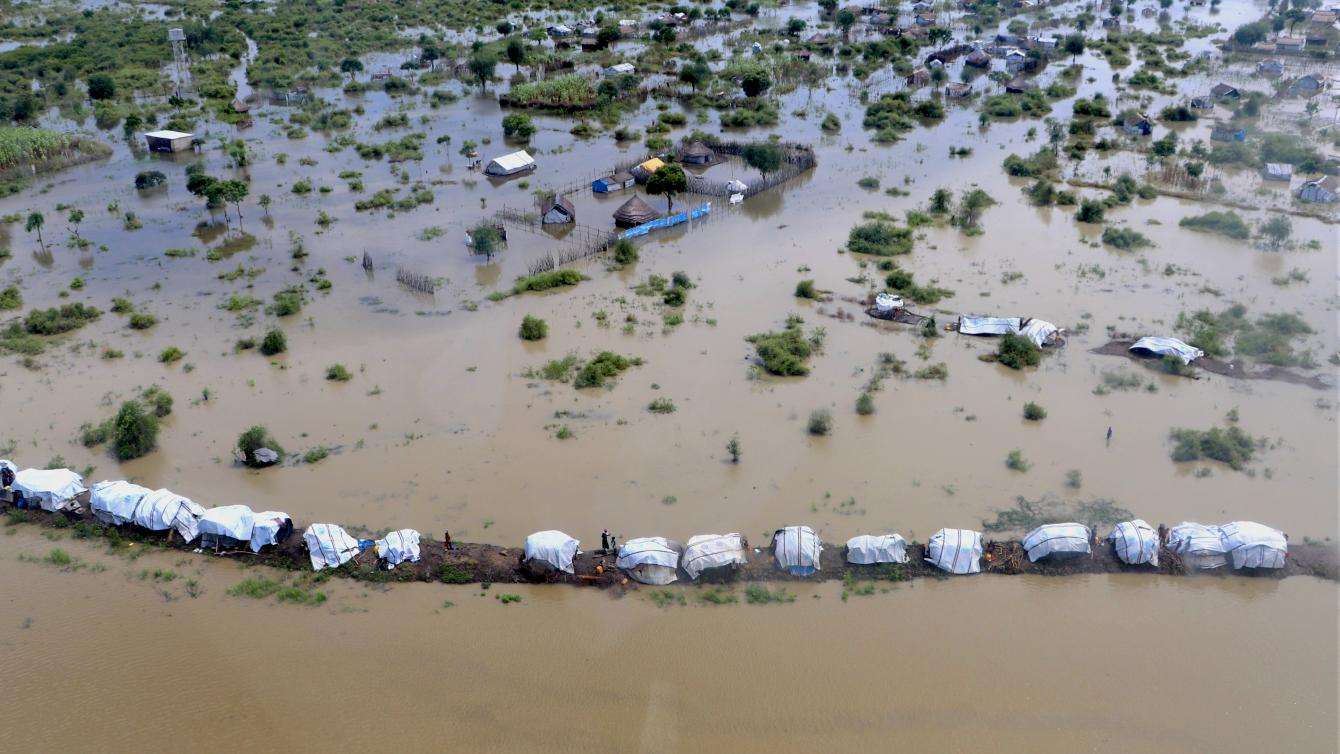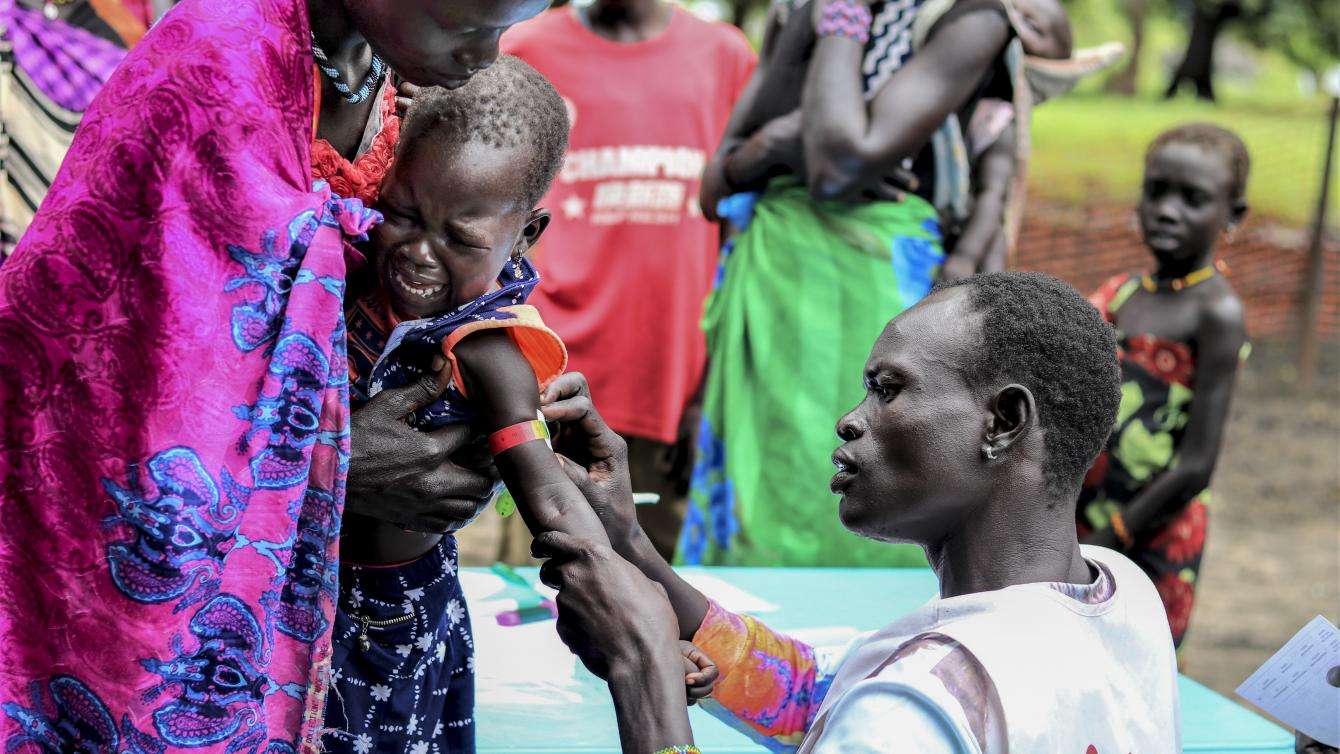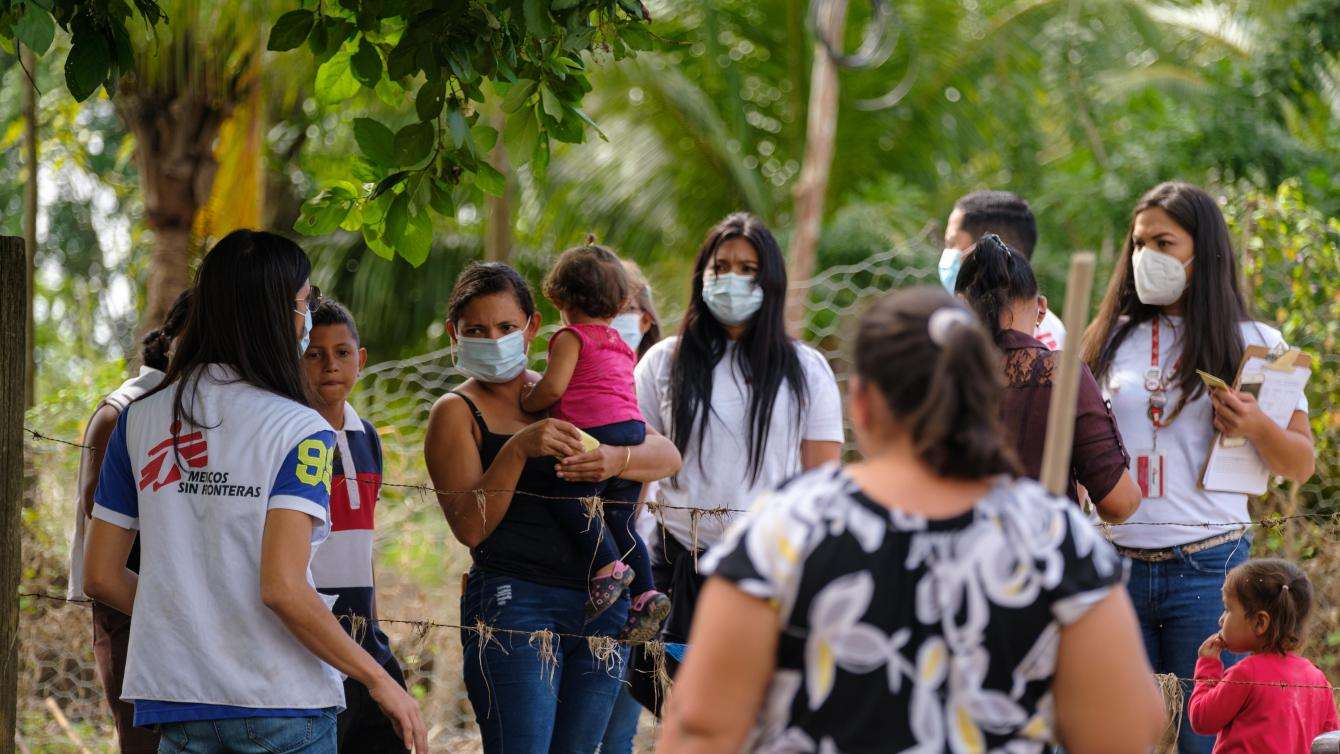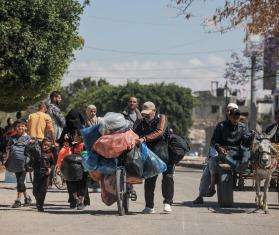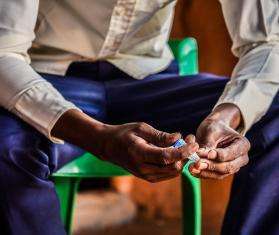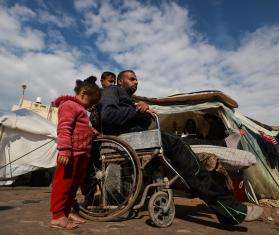Doctors Without Borders/Médecins Sans Frontières (MSF) teams around the world have witnessed a year like no other as they confront the extraordinary challenges of a pandemic while keeping other essential health services running. This special collection of photographs features some of the most striking scenes from our response to COVID-19—from reaching out to vulnerable groups in Hong Kong, to helping prevent the spread of infection in nursing homes in Europe and the United States, to caring for indigenous communities in Brazil’s Amazon rainforest. We see the acute humanitarian needs overshadowed by the coronavirus crisis, in countries affected by war, natural disasters, and other epidemics. In this photo essay, we also witness survival and strength during a tumultuous year.
Responding to COVID-19 around the world

May Chan (in red), who works as a street cleaner in Hong Kong, attends a health promotion session run by MSF in February. She learns about infection prevention and control measures to keep herself and others safe from the new coronavirus.
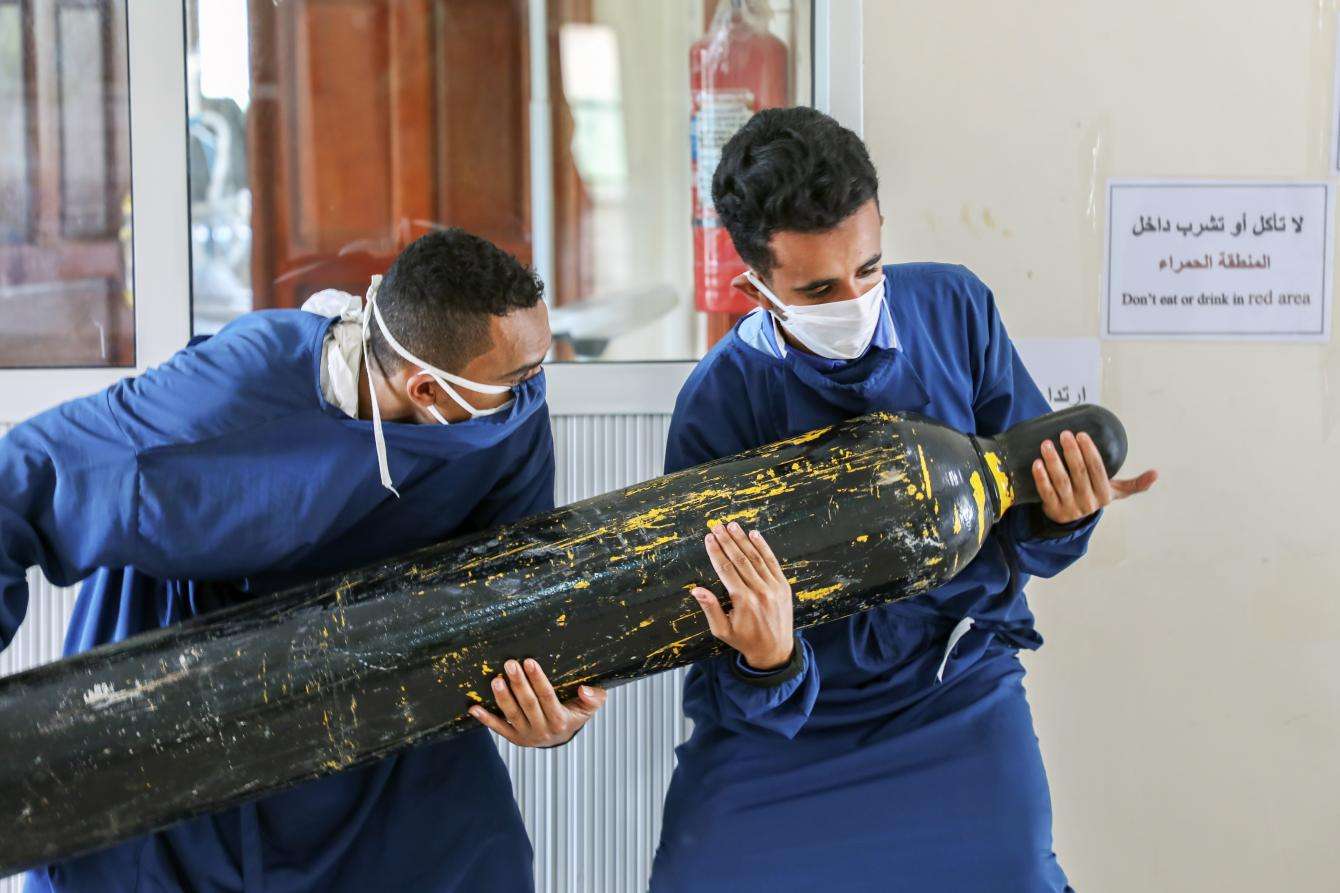
Workers at the Al-Sahul COVID-19 treatment center in Ibb governorate, Yemen, carry an oxygen cylinder to the intensive care unit. Patients with moderate to severe symptoms of COVID-19 need about six oxygen cylinders a day—and maintaining adequate supplies in this war-torn country is a major challenge.
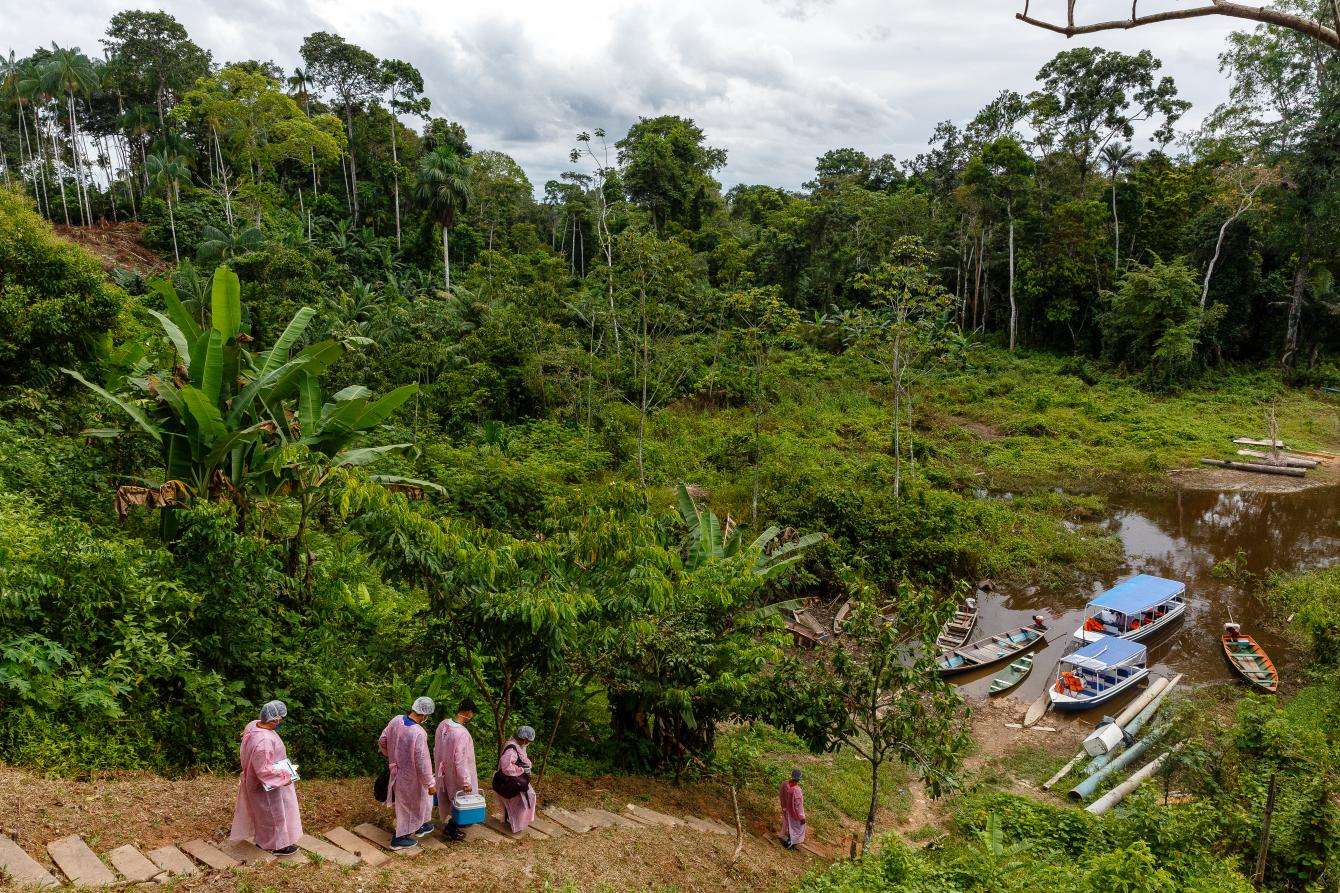
A mobile medical team sets off to reach patients living in the Lake Mirini region of the Amazon rainforest in Brazil. They travel by boat to bring primary health services to the town of Tefé, and take smaller boats along the way to provide medical consultations to people living in more isolated areas.
Facing the pandemic in the United States
A visitor to the MSF shower trailer in midtown Manhattan waits for a stall to become available. Earlier this year, MSF partnered with local organizations to operate two relief stations in New York City, offering free access to hygiene facilities for people who were homeless or housing insecure—and therefore exposed to greater risks during the pandemic.
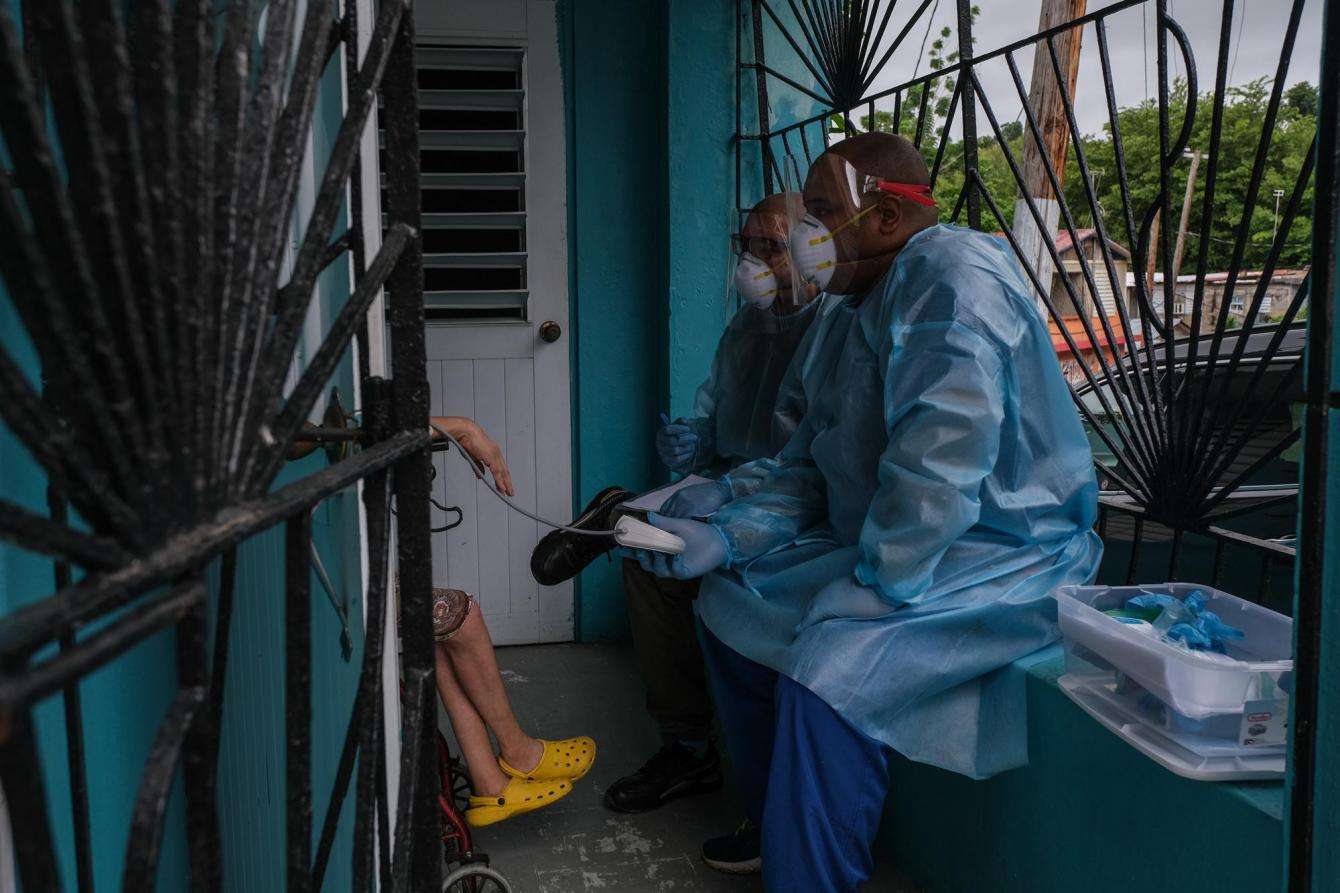
MSF physician Dr. Jonathan Caldera evaluates a patient while MSF nurse Omar Martinez takes her blood pressure reading during an in-home medical consultation in the community Buen Consejo in Rio Piedras, Puerto Rico. MSF’s home-based care model was designed to reach people from the most marginalized and isolated communities.
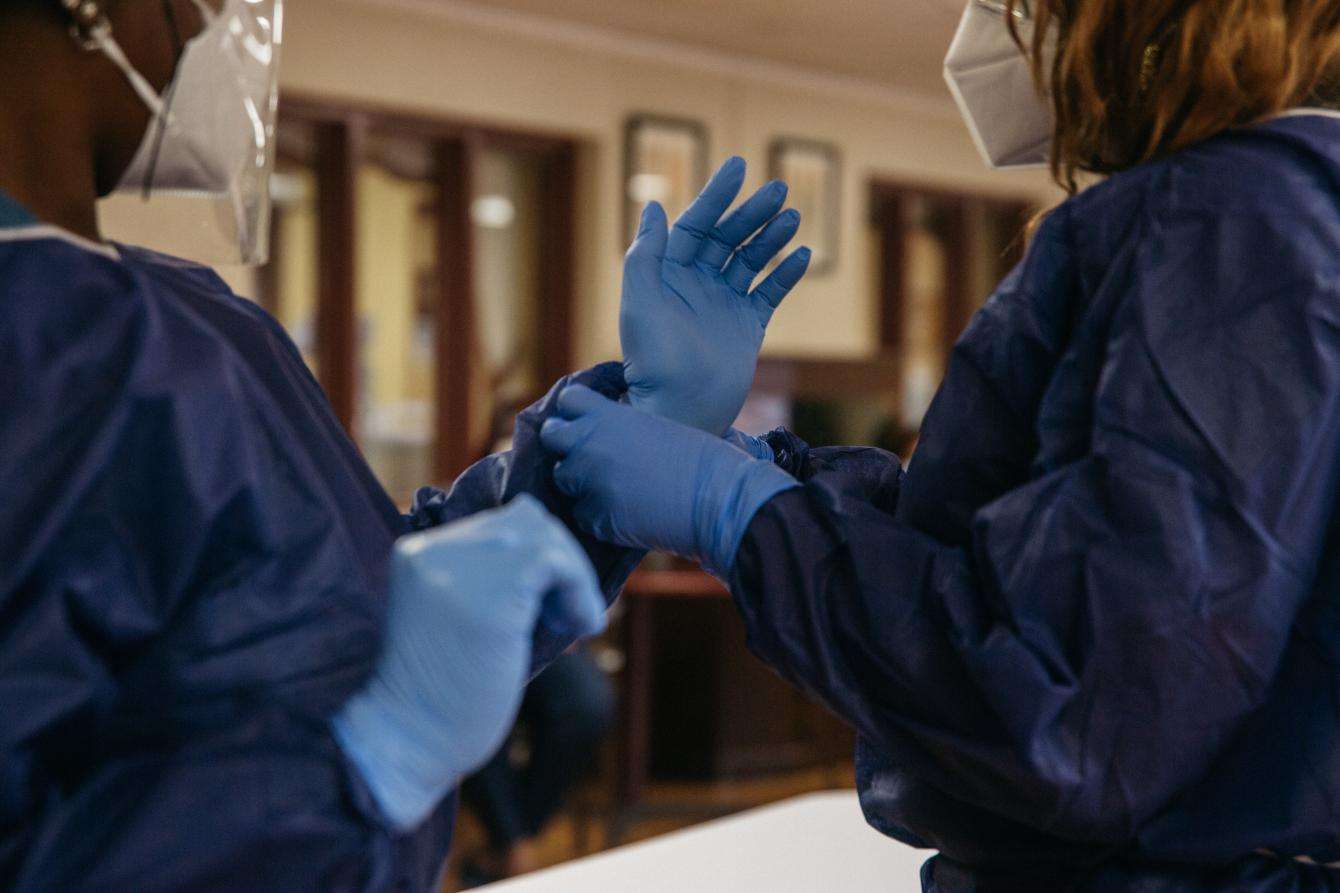
A staff member at Advantage Living Center in Roseville, Michigan, volunteers to demonstrate safe personal protective equipment practices during an MSF training on infection prevention and control. Essential workers in nursing homes and long-term care facilities, including environmental services staff, work in close proximity to residents and play a critical role in preventing the spread of COVID-19.
Forgotten emergencies
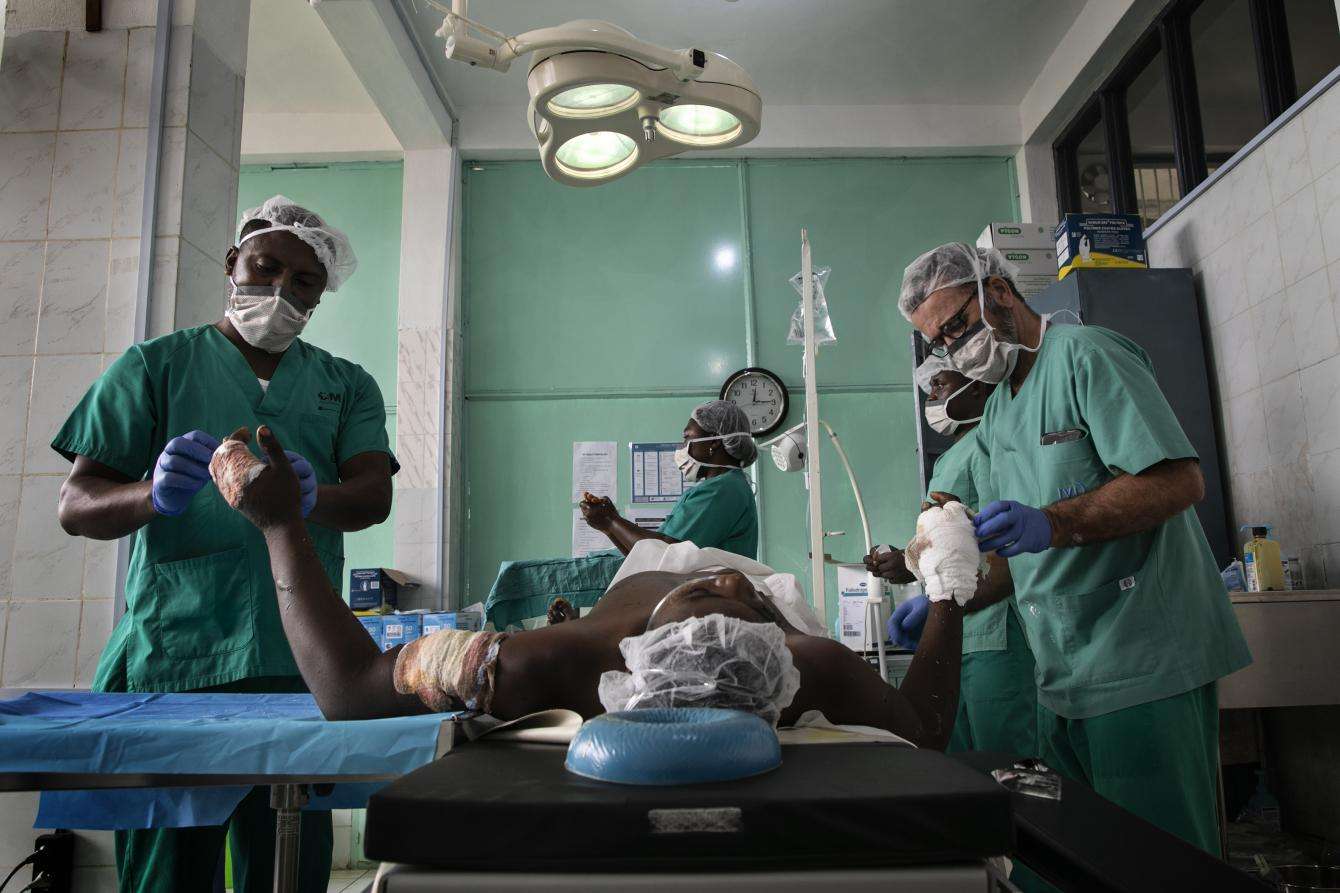
At St. Mary Hospital in Bamenda, Cameroon, MSF surgeons care for a patient who had been attacked on the road by armed men. He was tortured and shot five times. Intensifying conflict across the northwestern region of the country has left many people in urgent need of medical care.
MSF nurse Marzia and nurse assistant Nasrin perform CPR on a baby in critical condition at the inpatient therapeutic feeding center of Herat regional hospital in Afghanistan. Persistent violence, distance, and cost remain significant barriers for people struggling to access health care.
Earlier this year, MSF partnered with Sea-Watch to resume search and rescue operations in the Central Mediterranean Sea. On August 29, the Sea-Watch 4 assisted the only other search and rescue boat in the area—a ship called Louise Michel funded by the artist Banksy—taking on an additional 152 people. In September, Italian authorities detained the ship in the port of Palermo, effectively blocking further lifesaving activities.
